50 Black Writers Whose Impact Went Beyond The Page
Throughout America’s history, African American authors have represented a rich and diverse body of literature. They’ve contributed fiction and nonfiction, novels, short stories, essays, poetry, scholarly articles, academic writing, and…
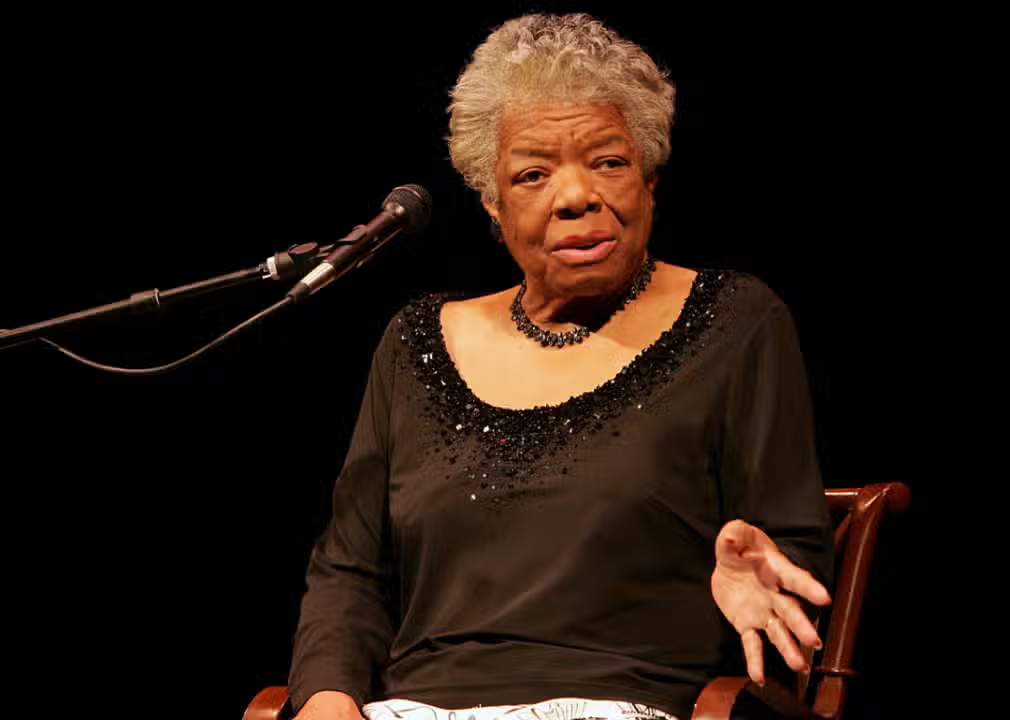
DO NOT USE STACKER IMAGE
Gary Miller/FilmMagic // Getty Images//StackerThroughout America’s history, African American authors have represented a rich and diverse body of literature. They’ve contributed fiction and nonfiction, novels, short stories, essays, poetry, scholarly articles, academic writing, and everything in between. The narratives they’ve added to American storytelling have shifted perspectives and created new dialogues around race, culture, politics, religion, and sociology. The stories they’ve told—both as creative writers and documentarians—have entertained, educated, and informed. In many cases, their work has gone as far as changing policies, practices, and cultural norms—not to mention shaping how the Black experience is viewed and understood in America.
In the United States, African American literature originated in the 19th century, mainly with slave narratives, many told from the perspective of escaped slaves such as Harriet Jacobs or Frederick Douglass. In the 1920s, as Black artists and intellectuals emerged following the Great Migration, the Harlem Renaissance produced prolific authors. Many of these early 20th-century works addressed issues like racism and segregation following the Civil War and Reconstruction Era.
By the middle of the century, Black authors played an important role in laying the foundation for political causes such as American civil rights and the Black Power and Black nationalism movement. Many feminist authors emerged during this time as well who put forward ideas about the relationship between race, sex, and gender. Women like Mary Ann Weathers and Audre Lorde had a profound effect on how these subjects were viewed and discussed. Black feminist thinkers established the mode of analysis of intersectionality, laying an important foundation for the modern feminist movement.
Following the civil rights movement, African American literature became incorporated into the mainstream as novelists like Alice Walker and Toni Morrison wrote bestsellers and began winning prestigious awards. Today, contemporary 21st-century writers like Roxane Gay, Ta-Nehisi Coates, and Colson Whitehead are integral figures in American literature and pop culture.
To celebrate some of the accomplishments of these great authors, Stacker put together a gallery featuring 50 Black writers who’ve had the biggest impact on American life and culture beyond the page. Read on to learn more about these important luminaries.
1. Toni Morrison
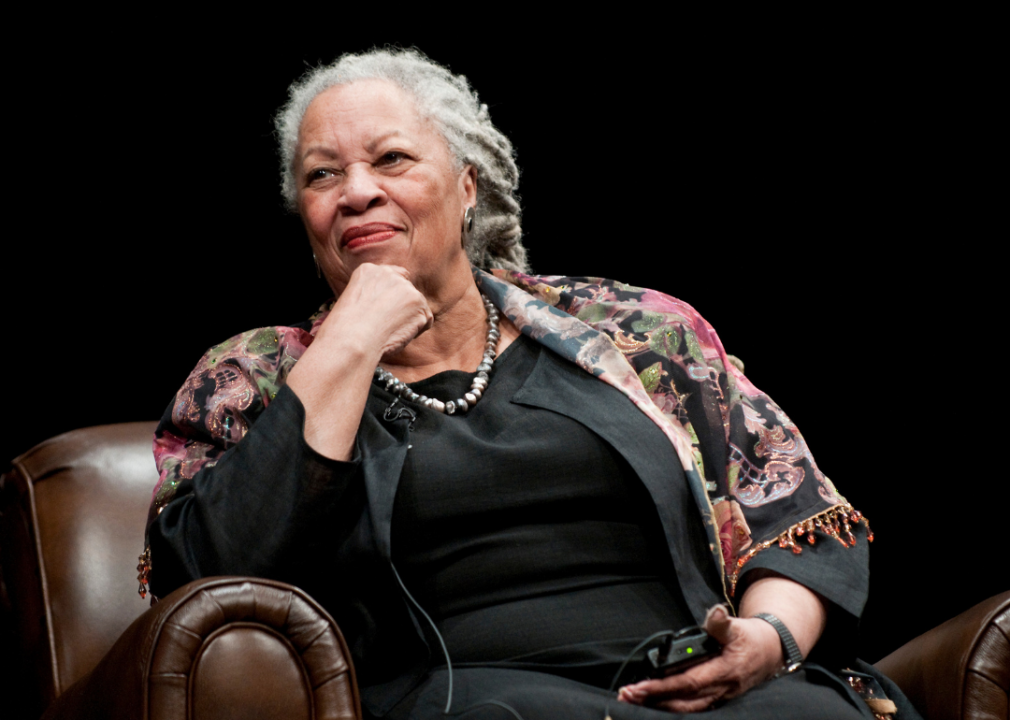
Daniel Boczarski/FilmMagic // GettyImages
Among numerous accolades, Toni Morrison was the first Black woman to win the Nobel Prize for Literature in 1993 and the first Black woman to be an editor at Random House. She is most famous for her novel “Beloved,” the story of an escaped enslaved woman who makes the painful decision to kill her daughter to prevent her re-enslavement. Slate columnist Laura Miller wrote of Morrison that she “reshaped the landscape of literature” with stories that “no other novelist, Black or white, attempted.”
2. Anna J. Cooper
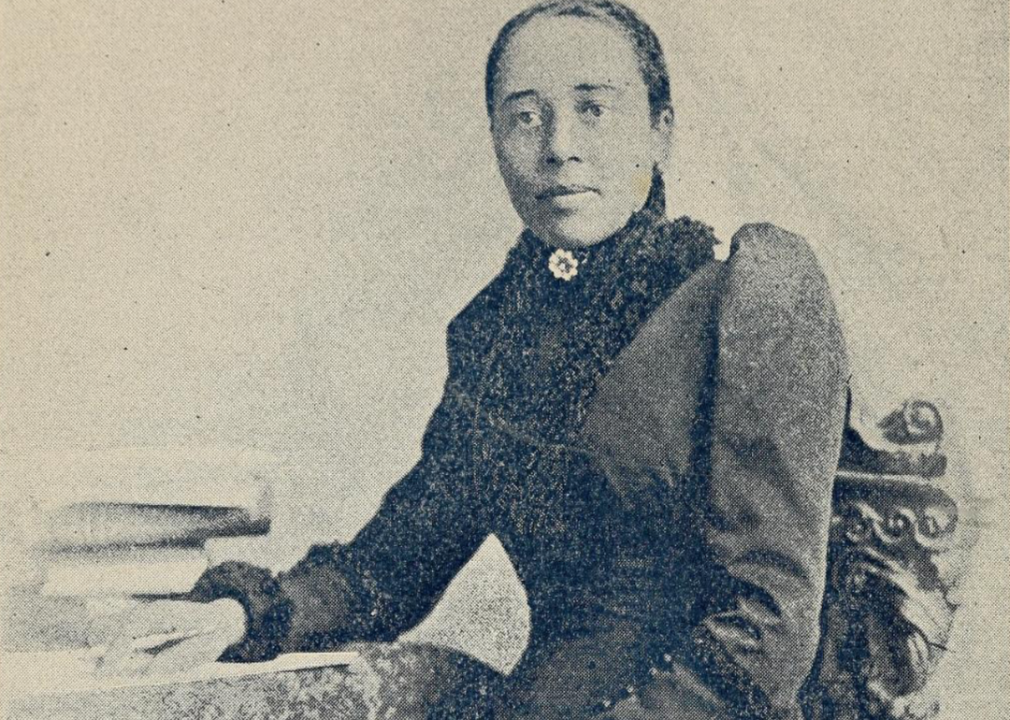
Unknown // Wikimedia Commons
Author and Black liberation activist Anna J. Cooper was born into slavery in the 1850s yet earned a doctorate in history from the University of Paris, becoming the fourth African American woman in history to get a doctorate. The early American scholar, who is sometimes referred to as “the mother of Black feminism,” was the first writer to discuss concepts of feminist “intersectionality,” though it wasn’t called that at the time. The phrase was coined in 1989 by Kimberlé Williams Crenshaw. Cooper’s 1892 collection of essays is called “A Voice from the South.” Cooper was a “radical call for a version of racial uplift that centered Black women and girls,” according to Naomi Extra of Vice.
3. James Baldwin
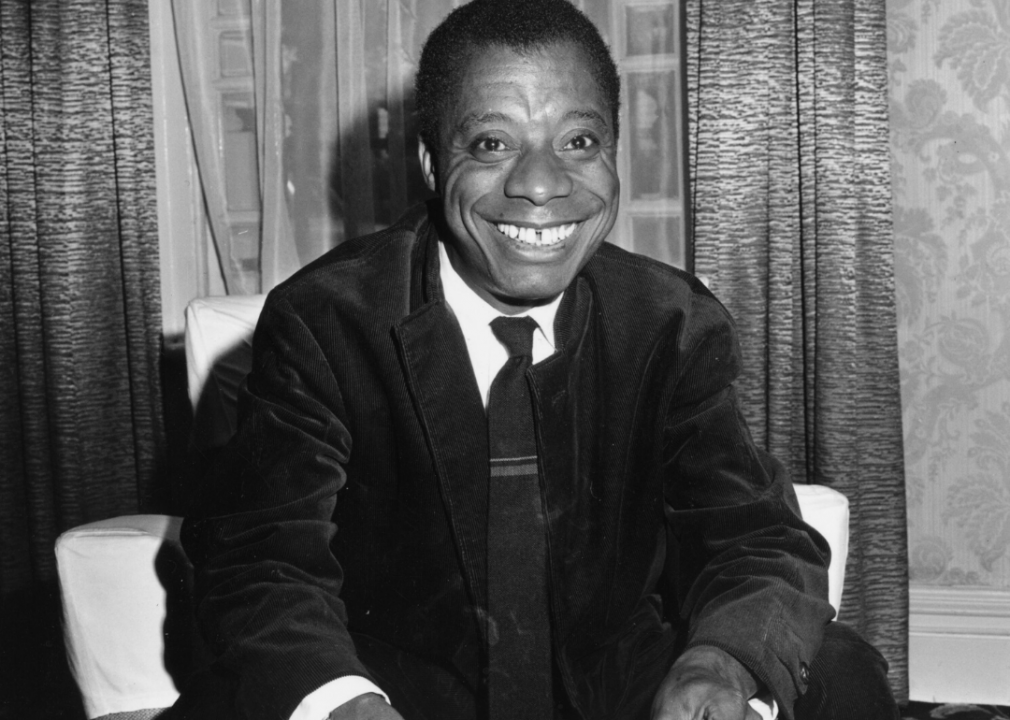
Jenkins // Getty Images
Best known for his essays on race, class, and sexuality (although he also wrote novels and plays), James Baldwin was a champion and leading voice of the American civil rights movement. As one of the few openly gay Black activists of this era (along with Bayard Rustin), he fought for LGBTQ+ rights alongside the rights of African Americans. The celebrated author penned his first play before the age of 11 when his teacher directed it at his elementary school. His most famous works include “Notes of a Native Son” and “I Am Not Your Negro.”
4. Gwendolyn Brooks
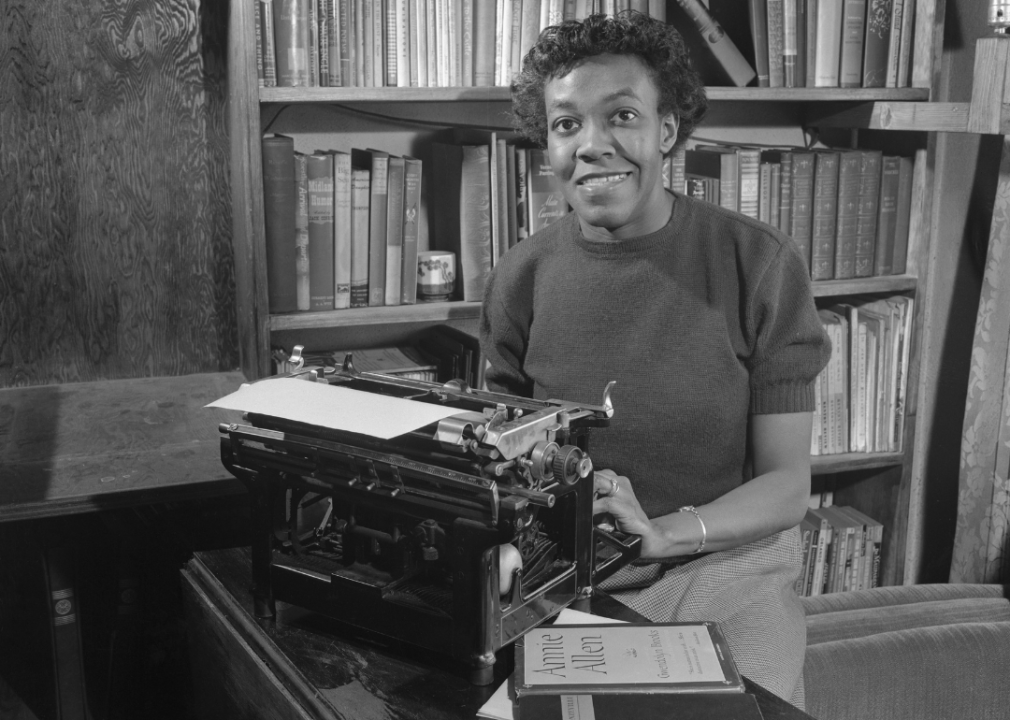
Bettmann // Getty Images
The first African American to receive the Pulitzer Prize for Poetry (for her 1949 collection “Annie Allen”), Gwendolyn Brooks was a revered poet and author. The poems in her most famous and critically acclaimed book detailed the life of a young Black girl in Chicago as she grows up and becomes a woman. She’s been praised widely for her work: “Because her poems and fiction are so captivating and faithful to the Black experience, consequently the human experience, Gwendolyn Brooks will continue to be read and be alive,” wrote Angela Jackson for LitHub.
5. Elizabeth Keckley
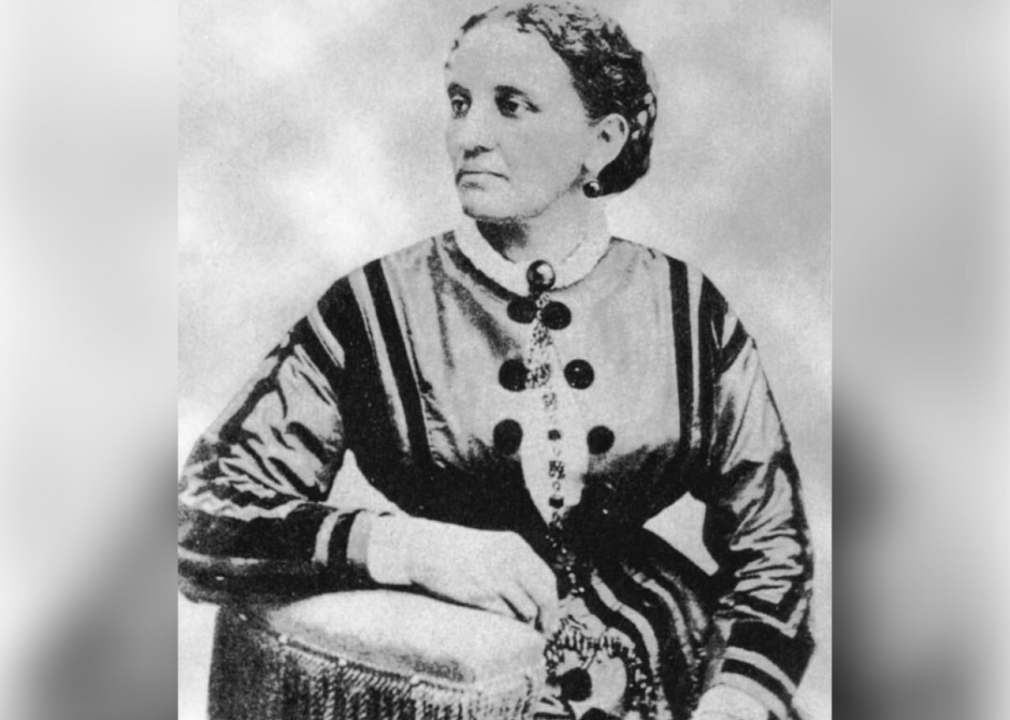
Unknown // Wikimedia Commons
After working as a seamstress and personal dresser to President Abraham Lincoln’s wife, first lady Mary Todd Lincoln, former enslaved woman Elizabeth Keckley wrote a memoir titled, “Behind the Scenes: Or, Thirty Years a Slave and Four Years in the White House.” The book detailed her time in the White House and was criticized by some for revealing private information about the Lincolns. In addition to her influence around the White House, the author founded an organization called the Contraband Relief Association that provided resources like food, clothes, and housing to freed slaves.
6. Robert Abbott
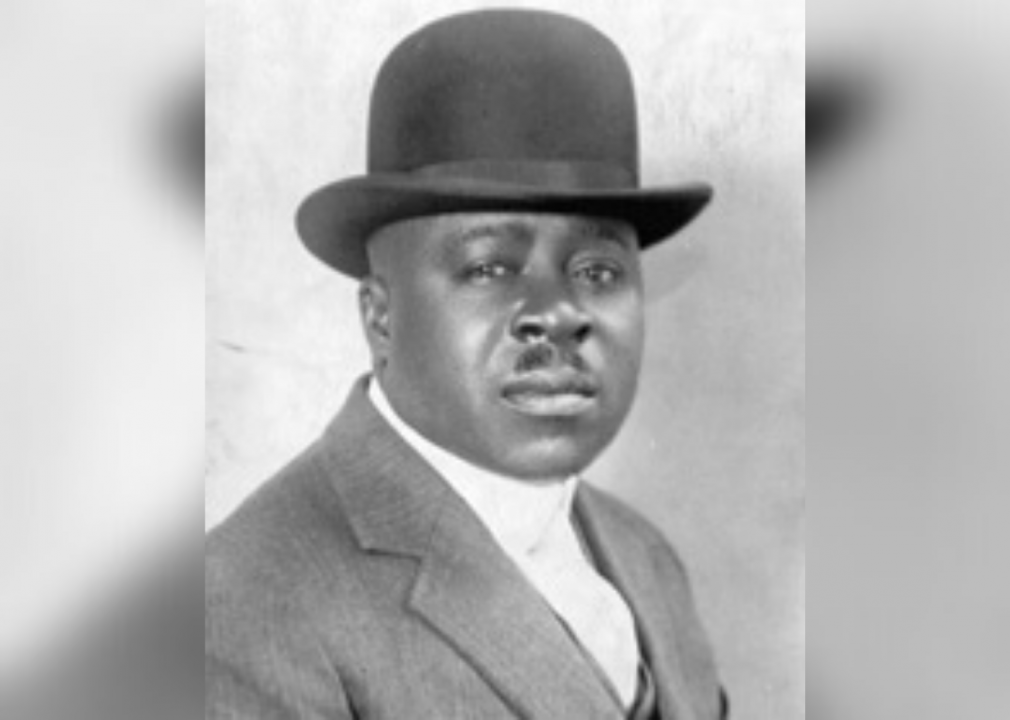
Unknown // Wikimedia Commons
The importance of Robert Abbott’s contribution to African American political discourse can’t be overstated. In addition to adding his own articles to the public conversation, the early 20th-century journalist founded The Chicago Defender in 1905, a weekly Black newspaper that covered issues relevant to African Americans at the time. In his own writing, he told captivating stories and encouraged Black people in the South to migrate to the North. “Without Abbott, there would be no ‘Essence,’ no ‘Jet’ (and its Beauty of the Week), no ‘Black Enterprise,’” Martenzie Johnson wrote for “The Undefeated.”
7. Richard Wright
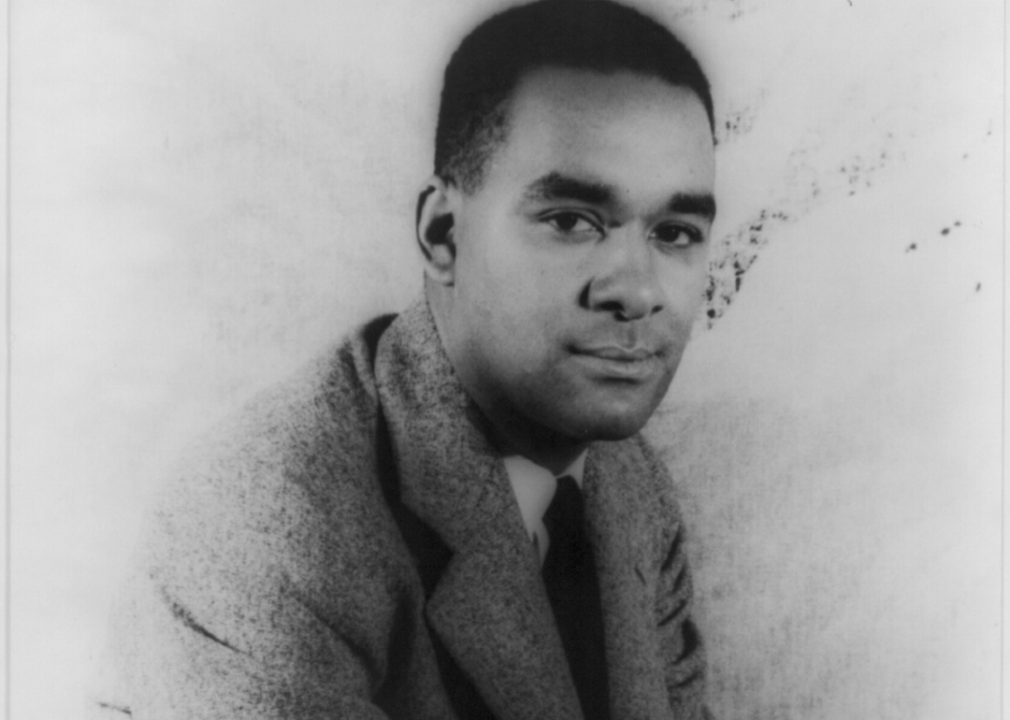
Carl Van Vechten // Wikimedia Commons
Richard Wright, famous for his memoir “Black Boy” and the novel “Native Son,” among others, is often ranked among the most influential Black writers of the 20th century. In addition to the enormous impact he had on Black American literature, he mentored other writers, among them James Baldwin. “I had identified myself with him long before we met,” Baldwin said of Wright after his death. “In a sense by no means metaphysical, his example had helped me to survive. He was Black, he was young, he had come out of Mississippi and the Chicago slums, and he was a writer. He proved it could be done—proved it to me, and gave me an arm against all the others who assured me it could not be done.”
8. Malcolm X
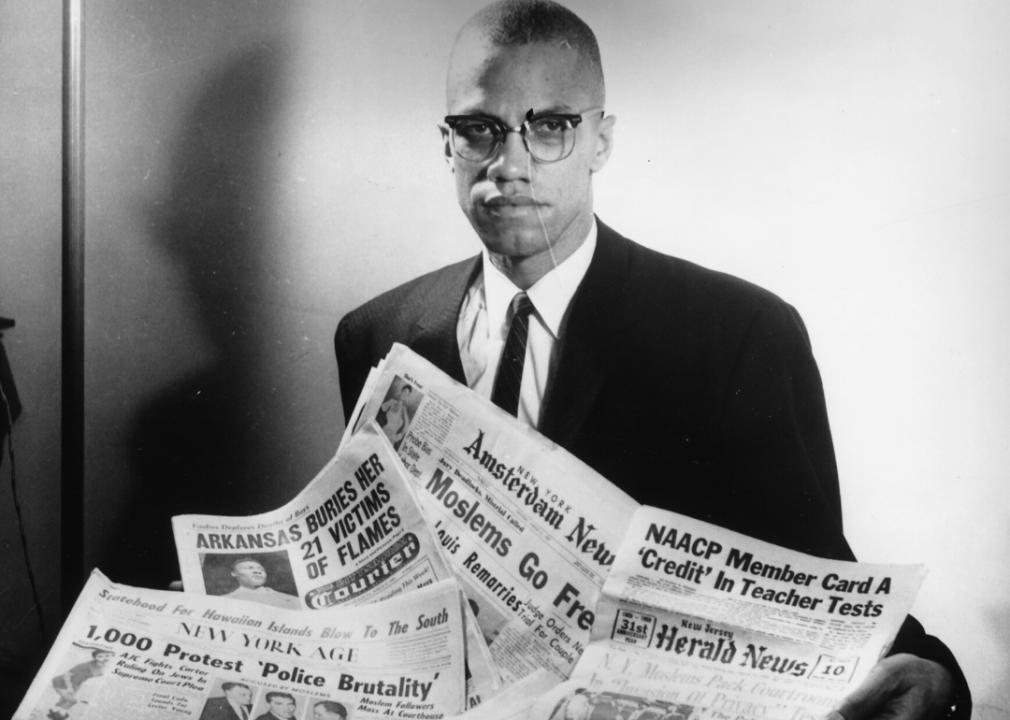
Three Lions/Hulton Archive // Getty Images
Often credited with kicking off the Black Power movement, Malcolm X was born Malcolm Little; however, he changed his name in prison after joining the Nation of Islam, explaining that he rejected the surname handed down to him by the “white slavemaster.” “The Autobiography of Malcolm X”—which he collaborated on with author Alex Haley—was “one of the most influential books in late-20th-century American culture,” according to cultural historian Howard Bruce Franklin. The vocal Muslim activist, who supported the separation of Blacks and whites (not to be confused with segregation), is sometimes contrasted with Martin Luther King Jr., who advocated for full integration. Malcolm X was assassinated in 1965.
9. Octavia Butler
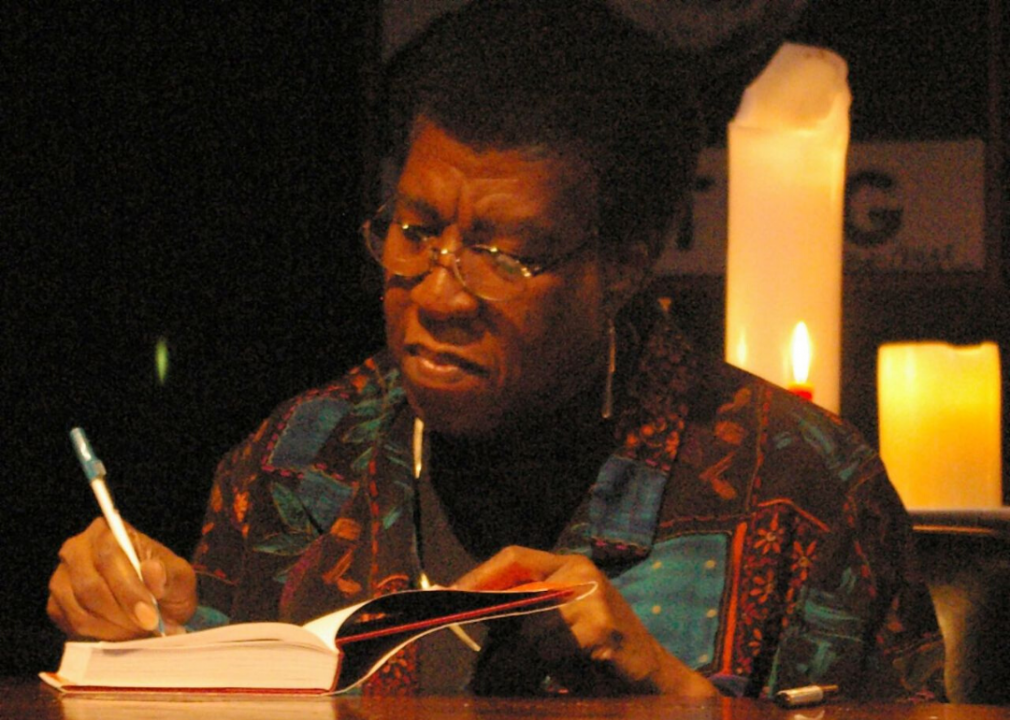
Nikolas Coukouma // Wikimedia Commons
Commonly considered the “foremost Black woman in sci-fi literature,” Octavia Butler, the author of “Bloodchild” and other popular science fiction books, was the first sci-fi writer to ever get a MacArthur Foundation fellowship. Her books contain radical visions of race and power. Her life’s work had a huge impact—not only on her genre but in the way she encouraged and mentored young science-fiction writers of color. “Her legacy is larger than just herself or her individual work, more than anyone probably can imagine right now,” author Ayana Jamieson told NBC News.
10. Toni Cade Bambara
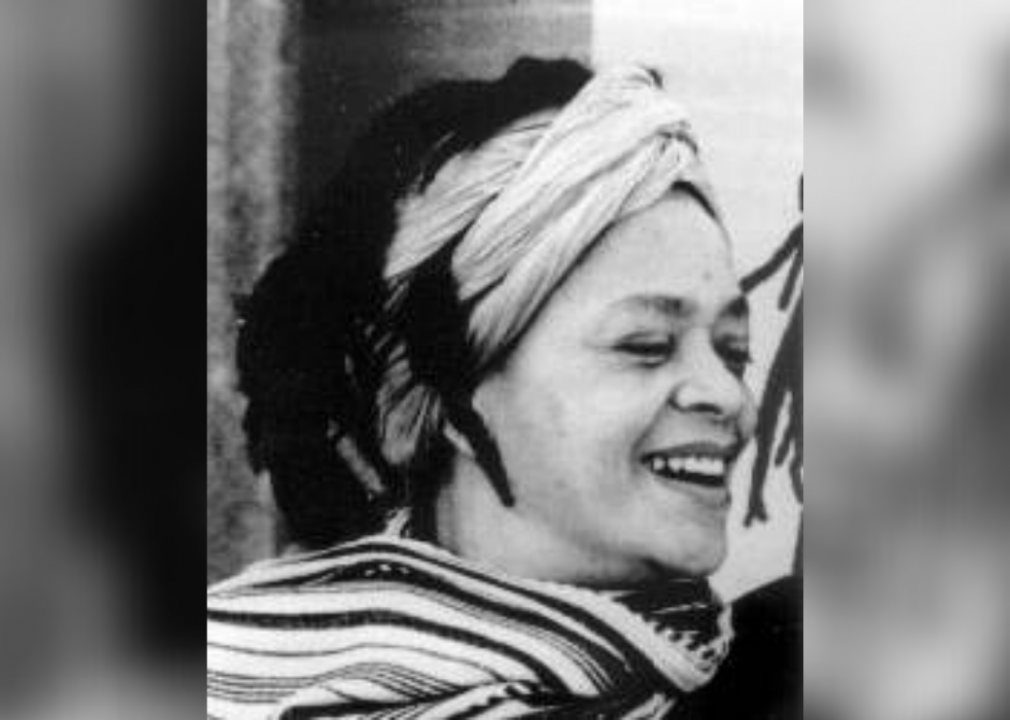
Unknown // Wikimedia Commons
On top of being a prolific contemporary writer (known for works such as “The Salt Eaters, “Gorilla, My Love,” and “The Sea Birds Are Still Alive”), Toni Cade Bambara was celebrated for her social consciousness and commitment to making literature accessible. When her book “The Black Woman” came out, for example, she urged her publisher to keep the price affordable so that Black women from all sorts of economic backgrounds could read it. According to Shondaland writer Lyndsey Ellis, she “helped create the recipe for Black love and unity as we know it today.”
11. Ta-Nehisi Coates
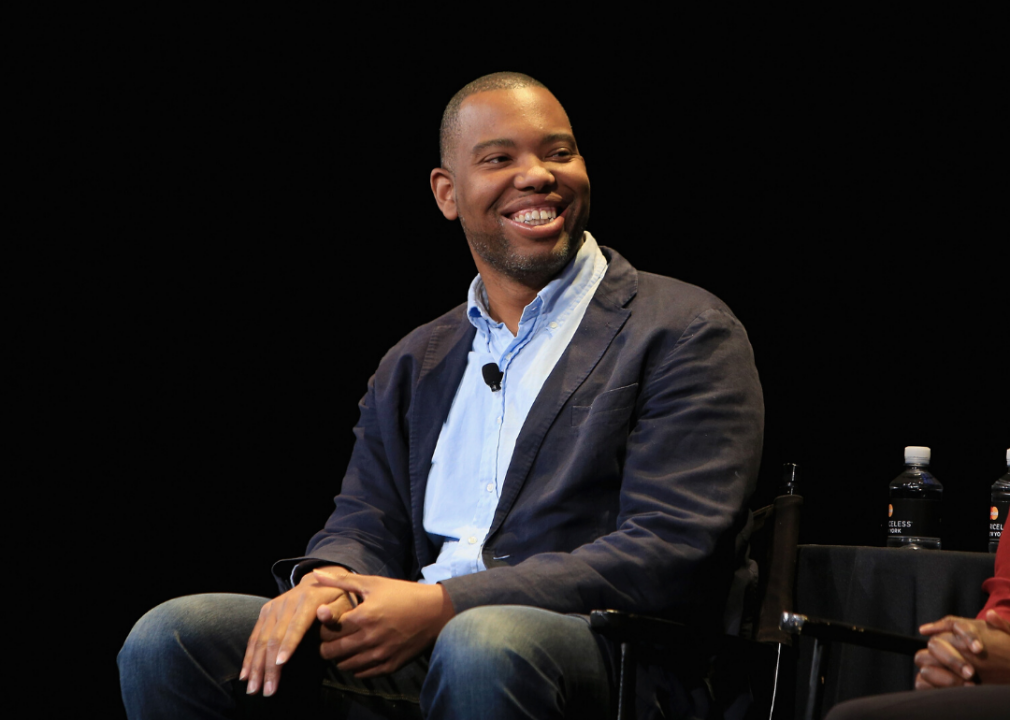
Anna Webber // Getty Images for The New Yorker
Although he only published his first book in 2008—and really only became widely known after 2015’s “Between the World and Me”—Ta-Nehisi Coates has swiftly become one of the most influential voices among modern African American writers. He gained a following during his years as a writer for The Atlantic and has now written four books as well as the “Black Panther” comic book series. His work contributes significantly to the current conversation around reparations, systemic racism, and white supremacy.
12. Frances Harper
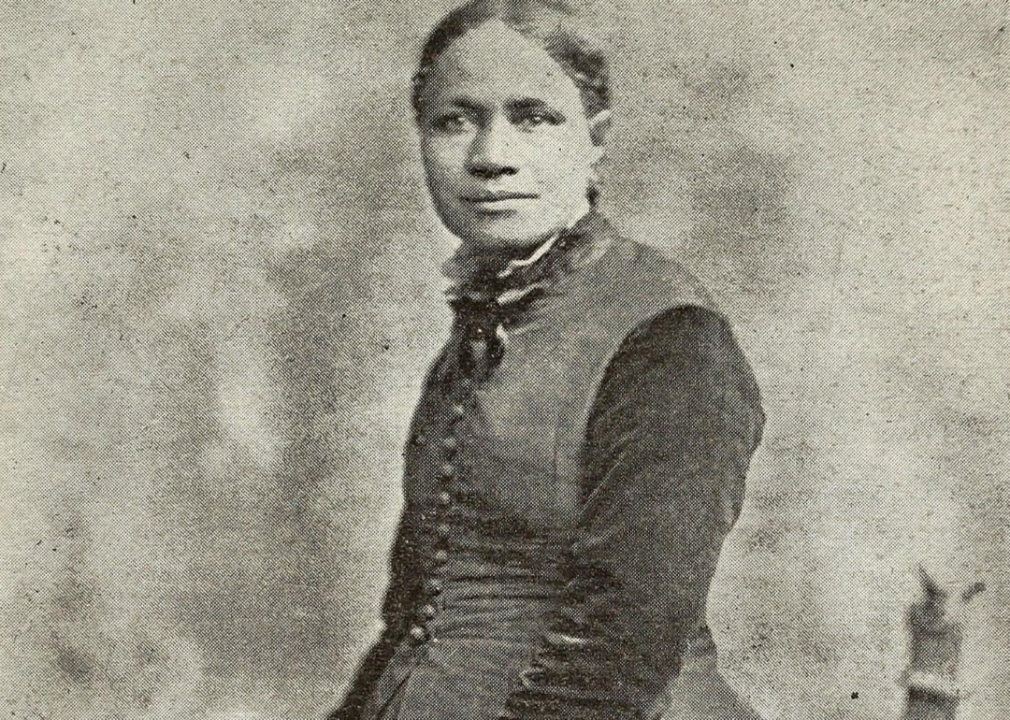
Lawson Andrew Scruggs // Wikimedia Commons
Called the “mother of African American journalism,” Frances Harper had a long career that began with a book of poetry and ended half a century later with the publication of her highly acclaimed novel, “Iola Leroy,” in 1892. The abolitionist and suffragist, who was herself born free, took great risks to help escaped enslaved people navigate the Underground Railroad on their path to freedom. She’s also known for refusing to give up her seat on a segregated trolley car—100 years before Rosa Parks became famous for a similar protest.
13. James Weldon Johnson
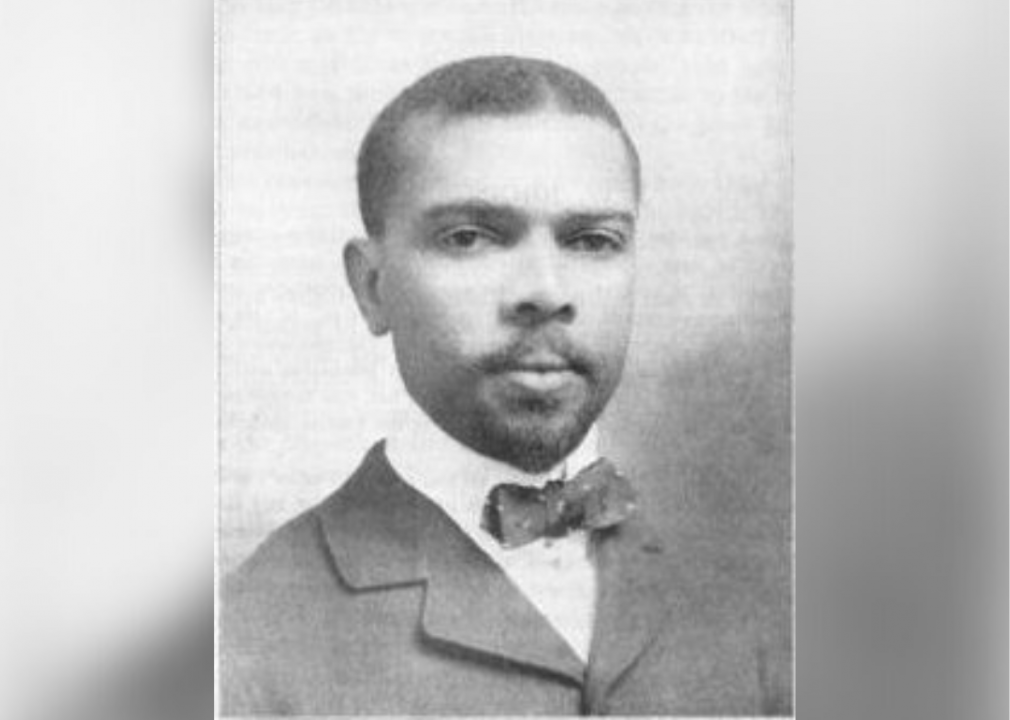
Unknown // Wikimedia Commons
In addition to authoring “The Autobiography of an Ex-Colored Man” and numerous poetry collections, James Weldon Johnson was an early leader of the National Association for the Advancement of Colored People (NAACP). The human rights activist worked as a U.S. consul under President Theodore Roosevelt and taught literature at the historically Black college Fisk University, extending his impact on America far beyond the page.
14. Ida B. Wells
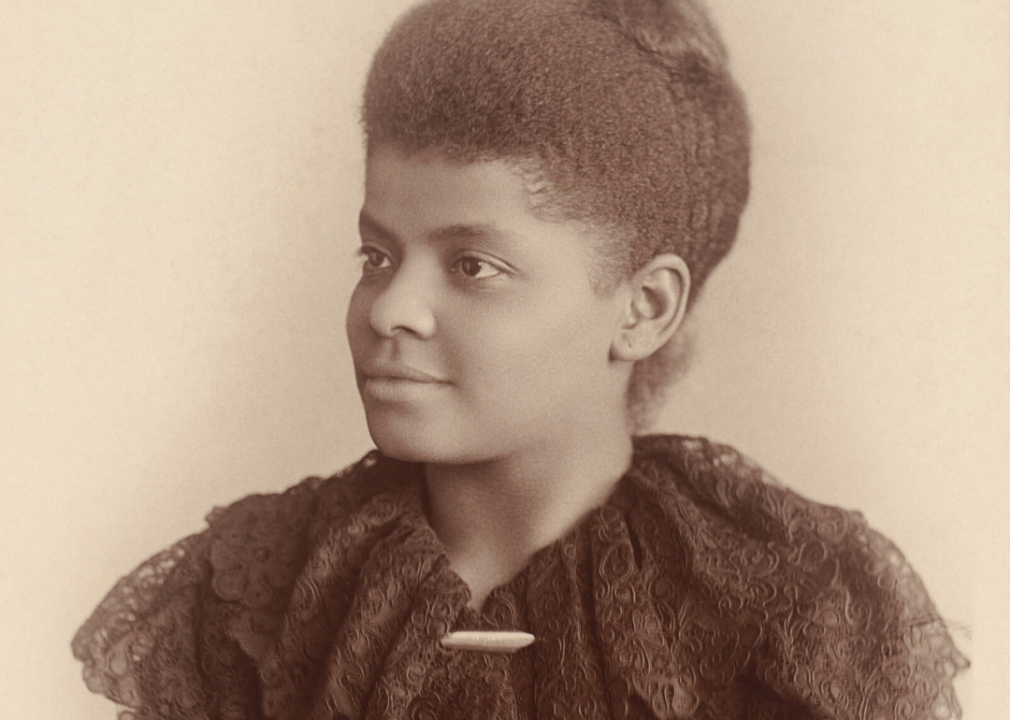
Mary Garrity // Wikimedia Commons
Ida B. Wells was a journalist and activist who brought attention to the lynchings in the United States in the late 19th and early 20th century. Among numerous pieces of investigative journalism, “Southern Horrors: Lynch Law in All Its Phases” exposed many of the cruel and inhuman practices taking place against African Americans at the time, drawing particular attention to the political and economic motivations behind them. The formerly enslaved woman, who was freed under the Emancipation Proclamation, co-owned the “Memphis Free Speech and Headlight” newspaper and was one of the founders of the NAACP.
15. Paul Laurence Dunbar
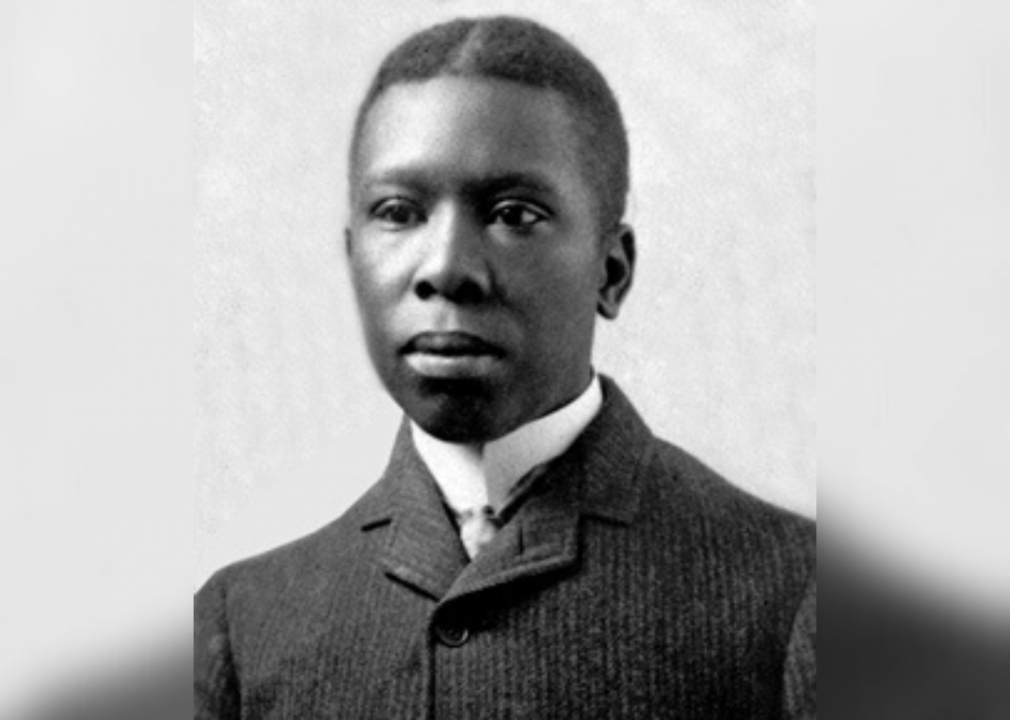
The African American Experience in Ohio // Wikimedia Commons
Born to previously enslaved parents, poet and playwright Paul Laurence Dunbar was known for his use of the “Negro dialect” in his writing. Among other accomplishments, he wrote the lyrics for 1903’s “In Dahomey,” the first all-Black Broadway musical. His friend, fellow writer James Weldon Johnson, praised his writing. “He was the first to rise to a height from which he could take a perspective view of his own race,” Johnson said. “He was the first to see objectively its humor, its superstitions, its short-comings; the first to feel sympathetically its heart-wounds, its yearnings, its aspirations, and to voice them all in a purely literary form.”
16. Langston Hughes
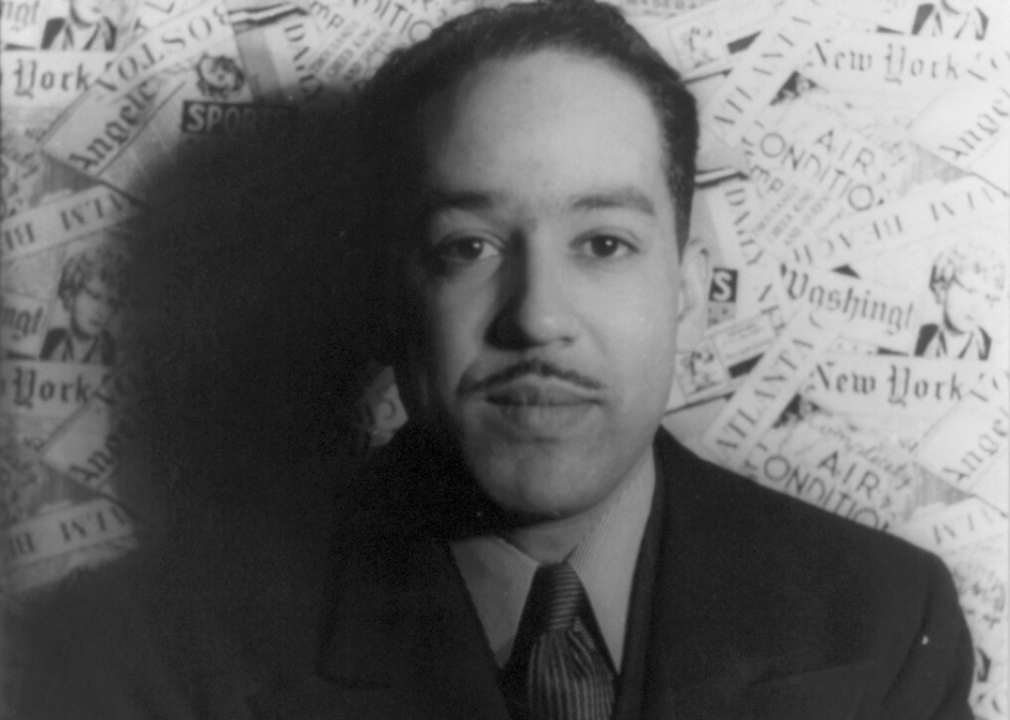
Carl Van Vechten // Wikimedia Commons
A star of the Harlem Renaissance (then known as the “New Negro Movement”), Langston Hughes wrote critically acclaimed poems, novels, and plays, in addition to insightful weekly columns in The Chicago Defender. He was an early creator of jazz poetry and one of the first Black authors able to successfully earn an income from his writing. “Fifty years after his death, Hughes’ extraordinary lyricism resonates with power to people,” wrote David C. Ward for Smithsonian Magazine.
17. Ishmael Reed
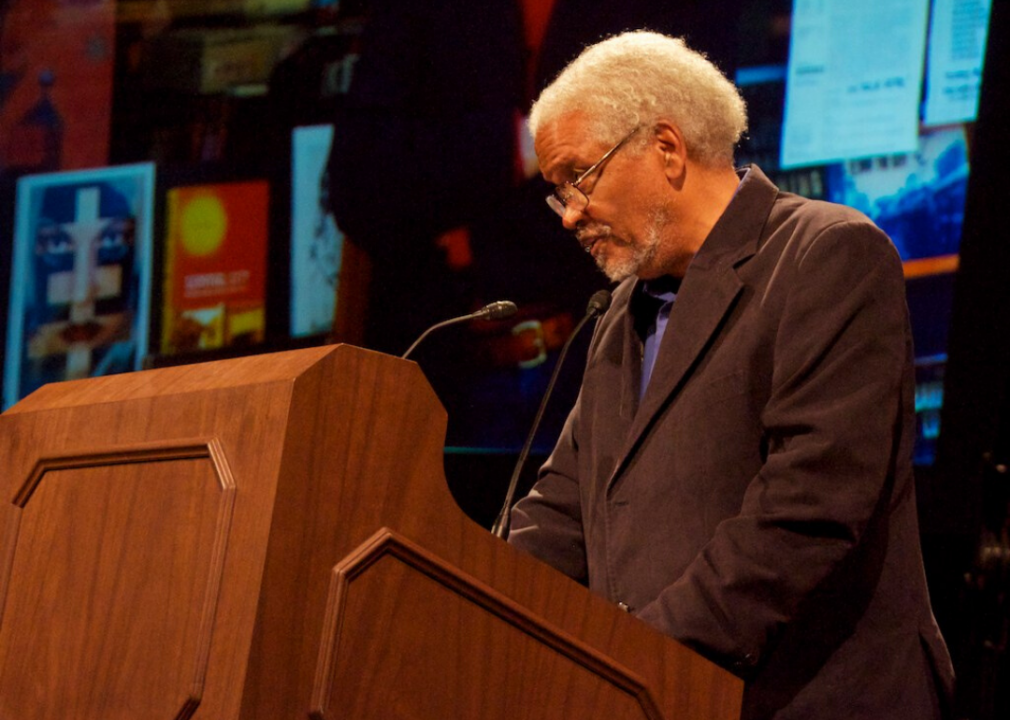
Steve Rhodes // Flickr
A satirist, Ishmael Reed’s writing has called attention to serious issues in American political culture via humor and parody. He’s also written at least 10 novels and a number of poems, plays, and essays. In the 1960s, Reed co-founded the underground “East Village Other” and was a member of the Umbra Writers Workshop, which helped launch the Black Arts Movement. His most famous writing is the 1972 novel “Mumbo Jumbo.”
18. Maya Angelou
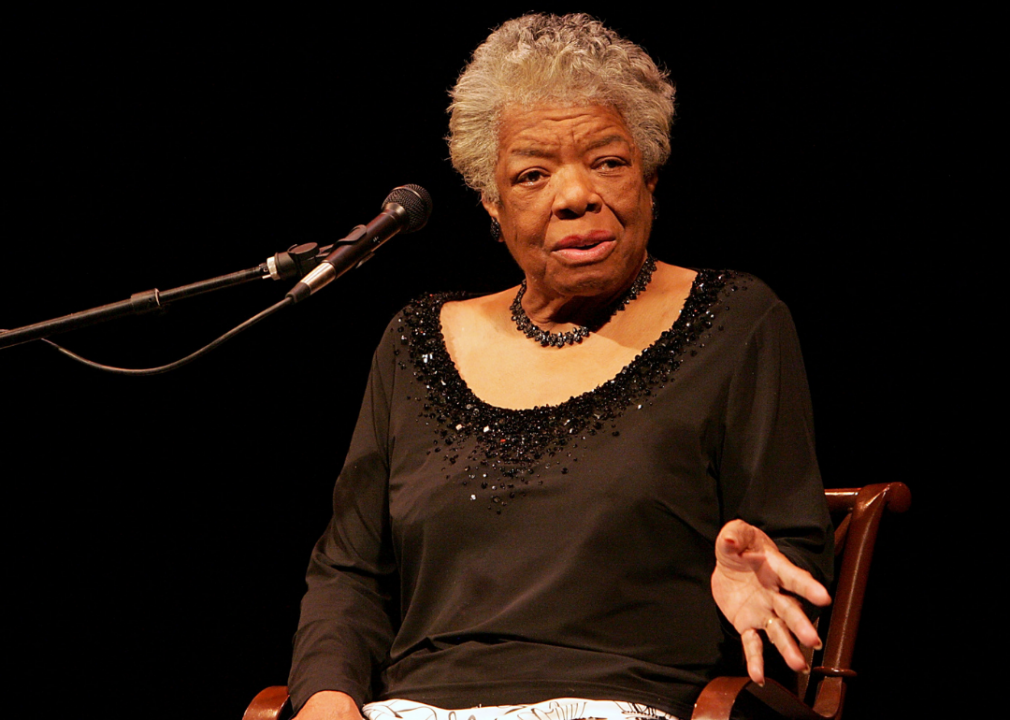
Gary Miller/FilmMagic // Getty Images
The author of seven autobiographies, along with several books of poetry and essays, Maya Angelou’s work has had a profound effect on the dialogue around race in America. She was inspired to write her most famous book, “I Know Why The Caged Bird Sings,” amid a deep depression following the assassination of Martin Luther King Jr. Fellow author James Baldwin, who was a friend, helped her editor persuade her to write it: “Baldwin told [Robert Loomis] that in order to get Angelou to do anything, you have to tell her she can’t do it,” wrote Bené Viera for Timeline. “The reverse psychology worked. She isolated herself in London and began writing.” It was an instant bestseller that’s now taught in high schools and colleges.
19. Rosa Parks
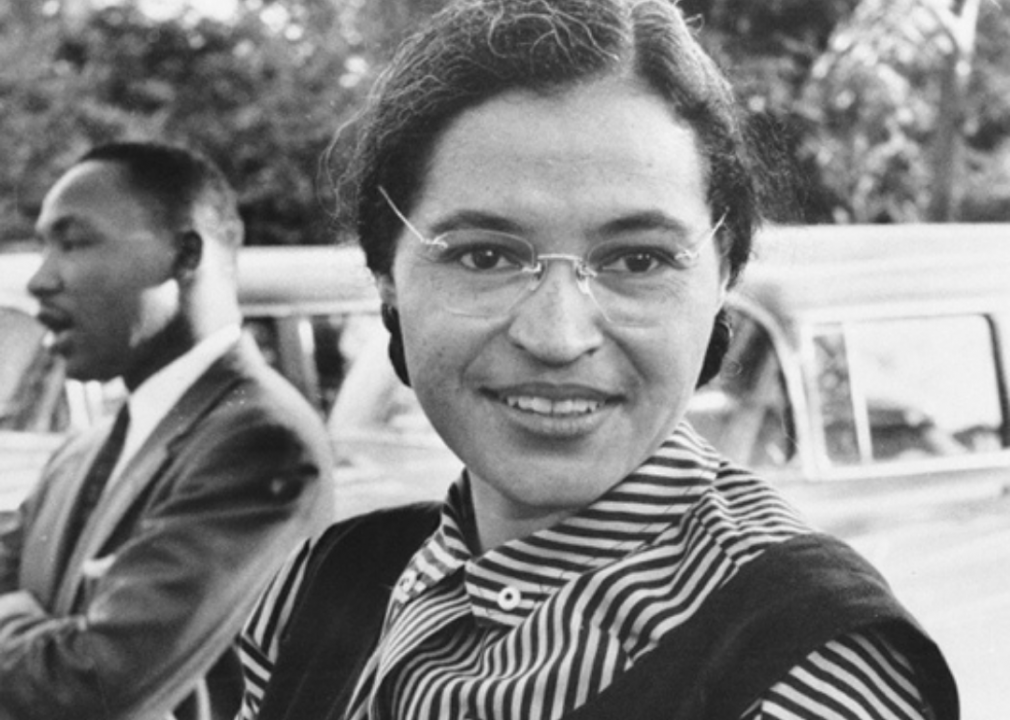
Unknown // Wikimedia Commons
Although Rosa Parks is most famous for her role as an activist during the Montgomery Bus Boycott, she also wrote an autobiography, as well as a number of notes that were later published. In the latter, she discussed how fierce the pressure was for African Americans to fall into line and not rock the boat, noting that it required a “major mental acrobatic feat” to survive during that era. “She refused to normalize the ability to function under American racism,” wrote Jeanne Theoharis for The Washington Post.
20. Amiri Baraka
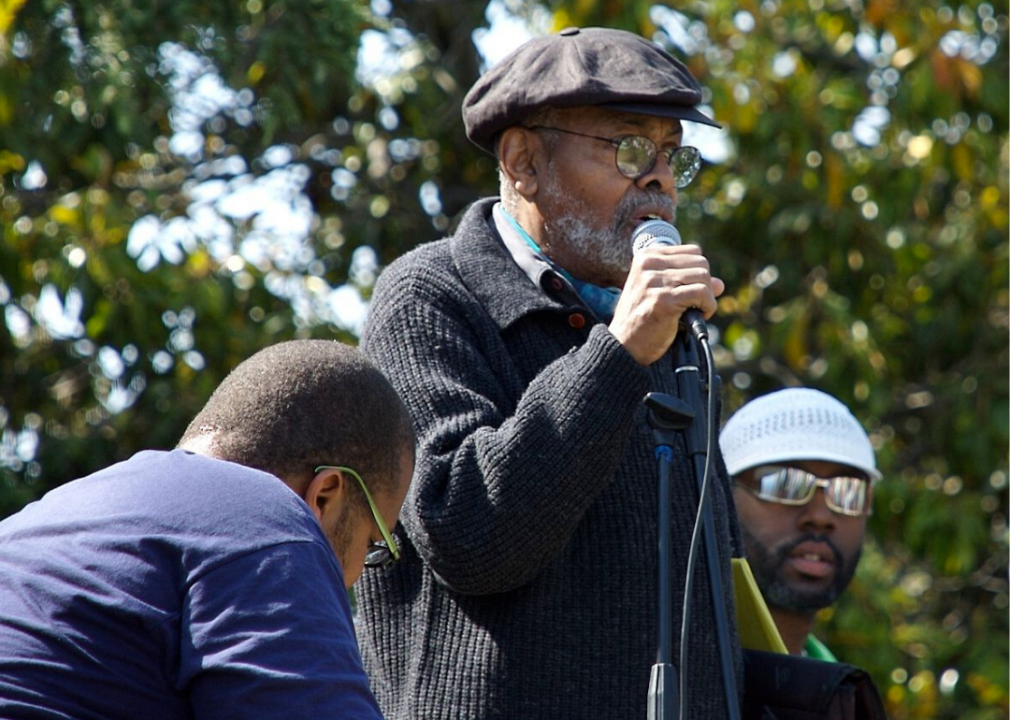
David Sasaki // Wikimedia Commons
Amiri Baraka was an outspoken author, poet, and playwright who advocated for Black nationalism and Marxism. His impact spread beyond his writing as he launched Harlem’s Black Arts Movement in the 1960s, several decades after the Harlem Renaissance. Although undoubtedly influential, he was also a controversial figure, particularly regarding his stance on homosexuality, which condemned the behavior.
21. James Cone
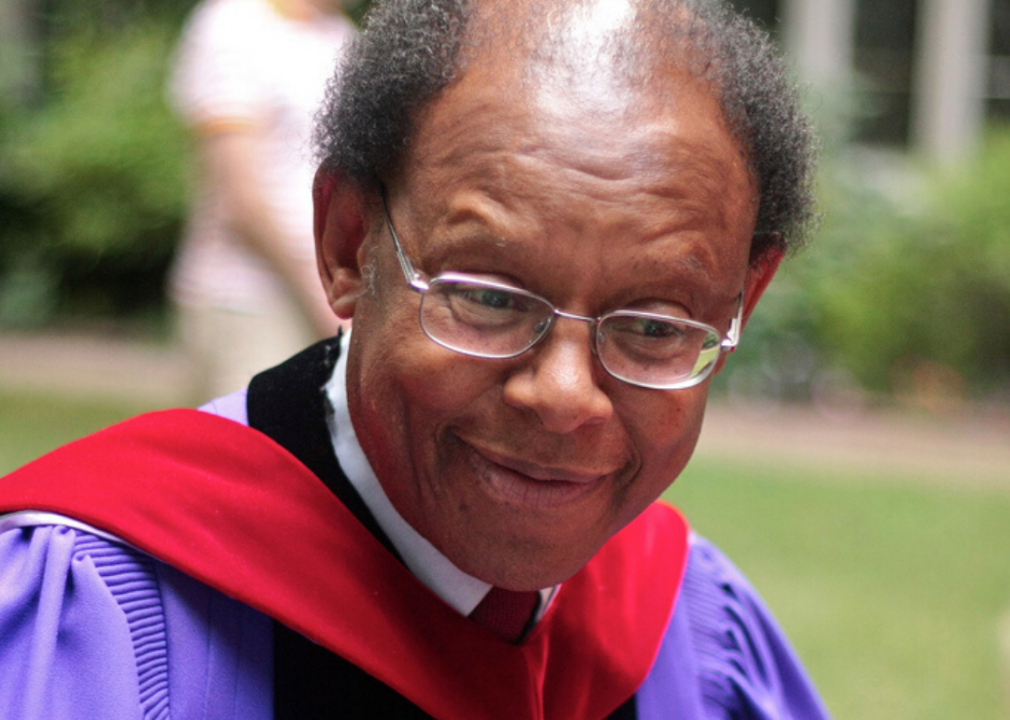
Coolhappysteve // Wikimedia Commons
James Cone has been called the most important theologian of his time. His 1969 book, “Black Theology and Black Power,” aligned the philosophies of the Black Power movement with the Black church, arguing that Jesus’ message was no different than the political movement with both advocating for the liberation of the oppressed. “Cone upended the theological establishment with his vigorous articulation of God’s radical identification with Black people in the United States,” wrote the Union Seminary. “His eloquent portrayal of Christ’s Blackness shattered dominant white theological paradigms, and ignited a wave of subsequent American liberation theologies.”
22. Lorraine Hansberry
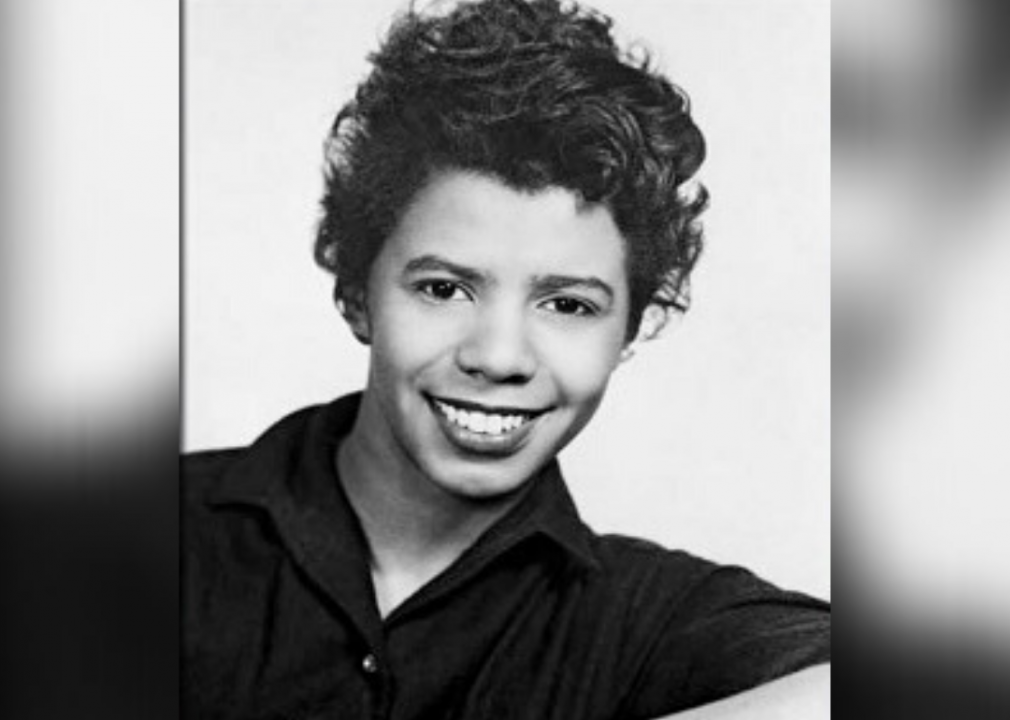
Unknown // Wikimedia Commons
Author of the famous play “A Raisin in the Sun”—which has been called “one of the most important plays ever written about Chicago”—Lorraine Hansberry boasts the title of being the first Black female playwright to have her script performed on Broadway. Hansberry is the inspiration for Nina Simone’s “To Be Young, Gifted and Black.”
23. Alex Haley
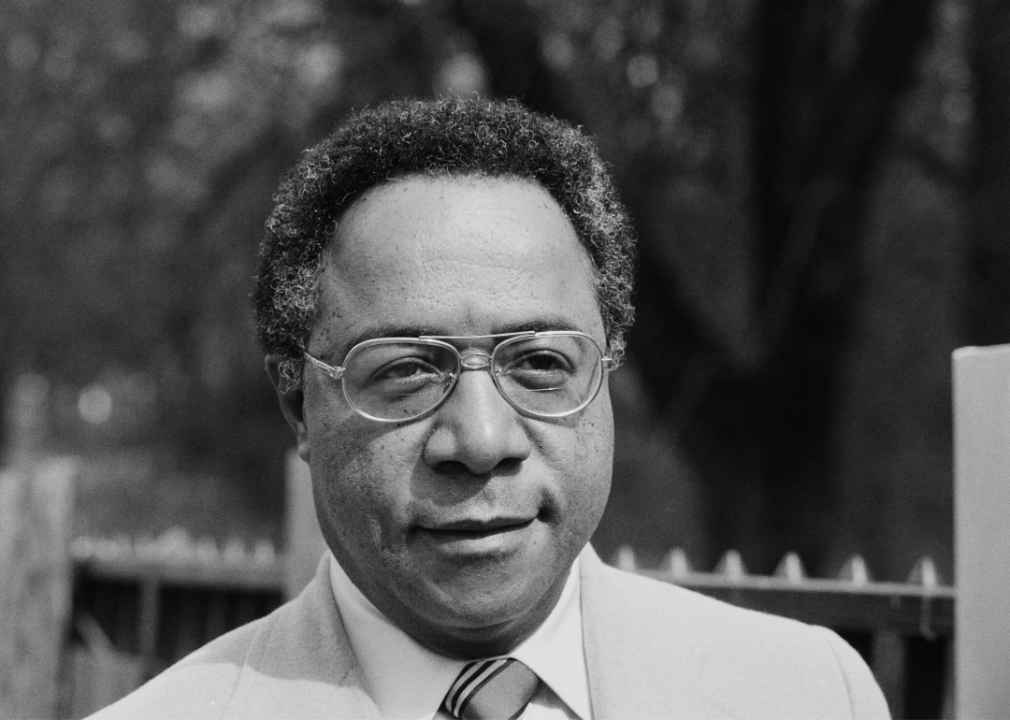
Hilaria McCarthy/Daily Express/Hulton Archive // Getty Images
Famous for his 1976 novel “Roots: The Saga of an American Family,” Alex Haley is often credited for kickstarting a wave of interest in genealogy and pride in African roots among Black people in America in the 1970s. This was also partly responsible for the growing preference at the time of the term African American, according to novelist Charles Johnson. In addition to “Roots,” Haley also authored “The Autobiography of Malcolm X,” a seminal work in African American literature and political dialogue.
24. Barack Obama
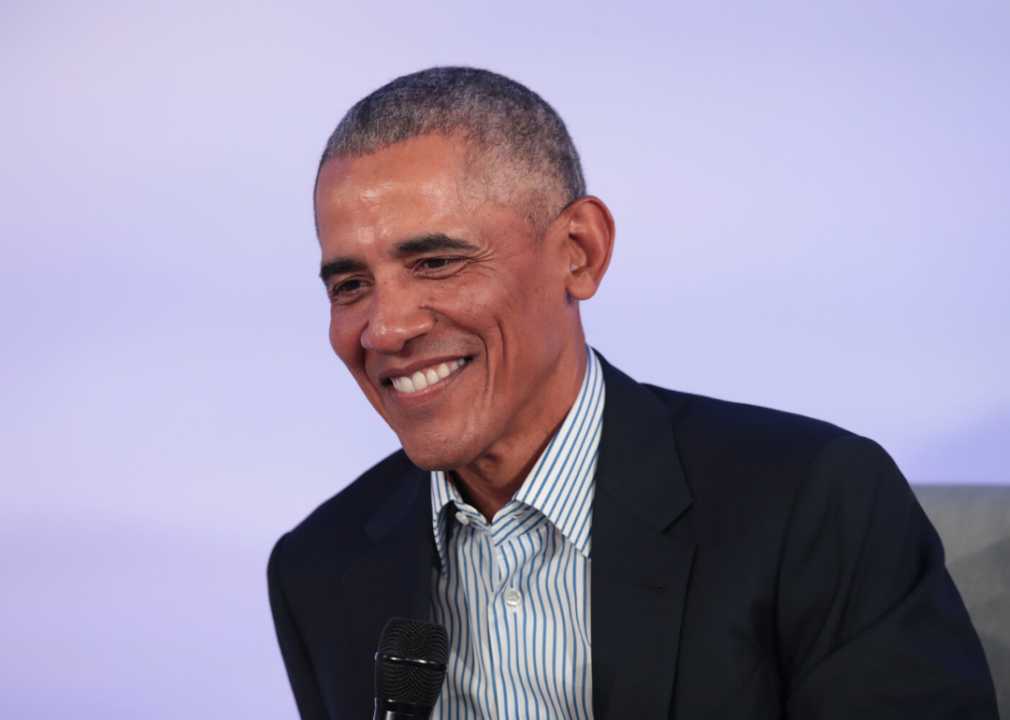
Scott Olson // Getty Images
These days, Barack Obama is known first as the 44th president of the United States; however, he’s a highly accomplished author as well. “Dreams From My Father,” which he published in 1995 before his first Senate campaign, was a widely acclaimed piece of nonfiction that Time columnist Joe Klein hailed as “the best-written memoir ever produced by an American politician.” In 2006, Obama’s “The Audacity of Hope” became #1 on The New York Times bestseller list. His follow-up, 2020’s “A Promised Land,” focuses on his first term as president; it’s the first of two planned books, the next of which will cover his second term.
25. Mary Church Terrell
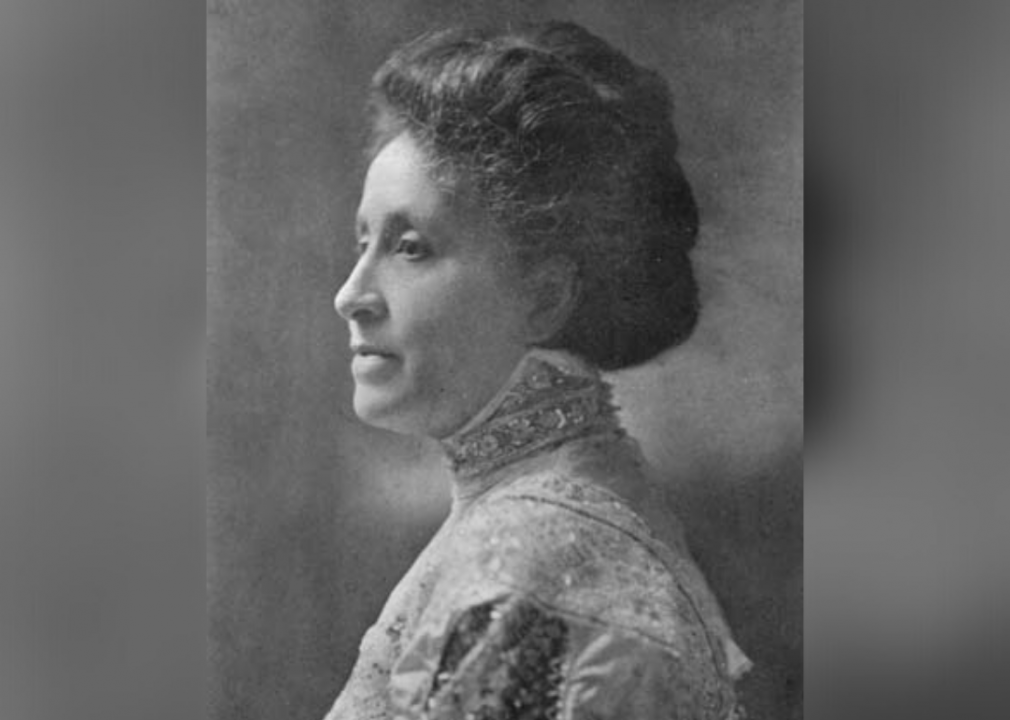
Addison N. Scurlock // Wikimedia Commons
In addition to being an excellent writer, Mary Church Terrell was a leading suffragist and civil rights activist. Born in 1863 to freed enslaved people who later became part of the late 19th century’s rising Black upper class, her parents “used their position to fight racial discrimination.” She was a graduate of Oberlin College—one of the first African American women to receive a college degree, in fact—and worked as a journalist under the pen name Euphemia Kirk. She wrote for The Washington Post, the Washington Evening Star, and the Chicago Defender, among others, and detailed her own experience with racism in her 1940 autobiography, “A Colored Woman in a White World.”
26. Frank Marshall Davis
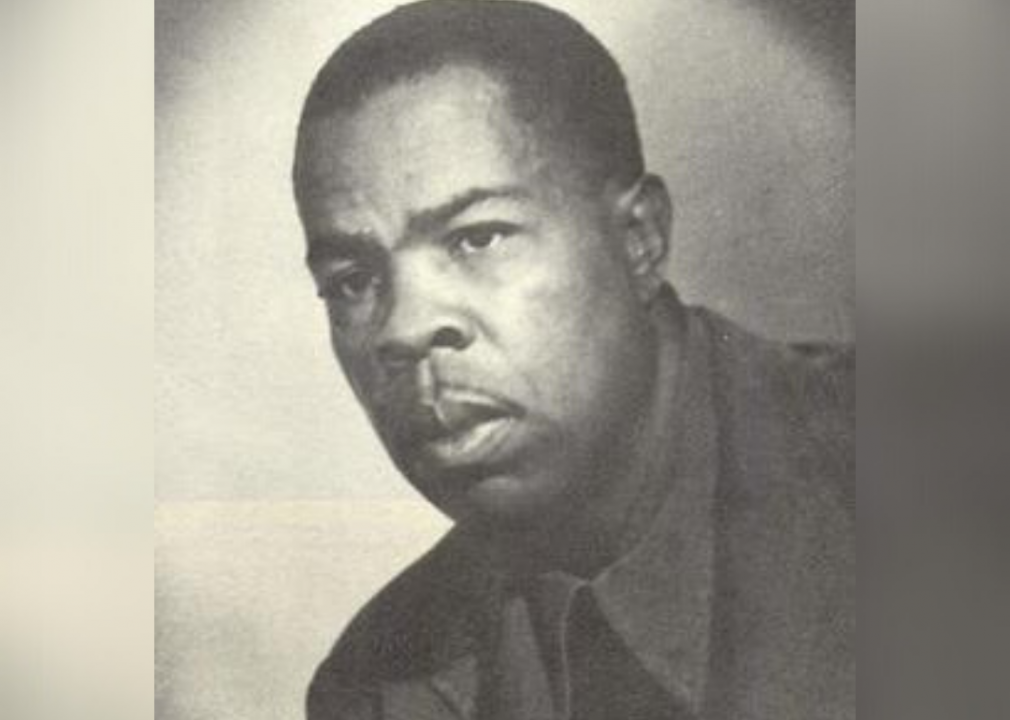
Unknown // Wikimedia Commons
Journalist, poet, and activist Frank Marshall Davis was part of a writer’s group—along with other famous authors like Richard Wright and Margaret Walker—that later came to be known as the Black Chicago Renaissance. In addition to writing about race and culture, Davis covered jazz and music history. He was famous in his own right for his many literary accomplishments, though he’s often remembered today for his association with former President Barack Obama, who wrote about him in “Dreams from My Father.”
27. Roxane Gay
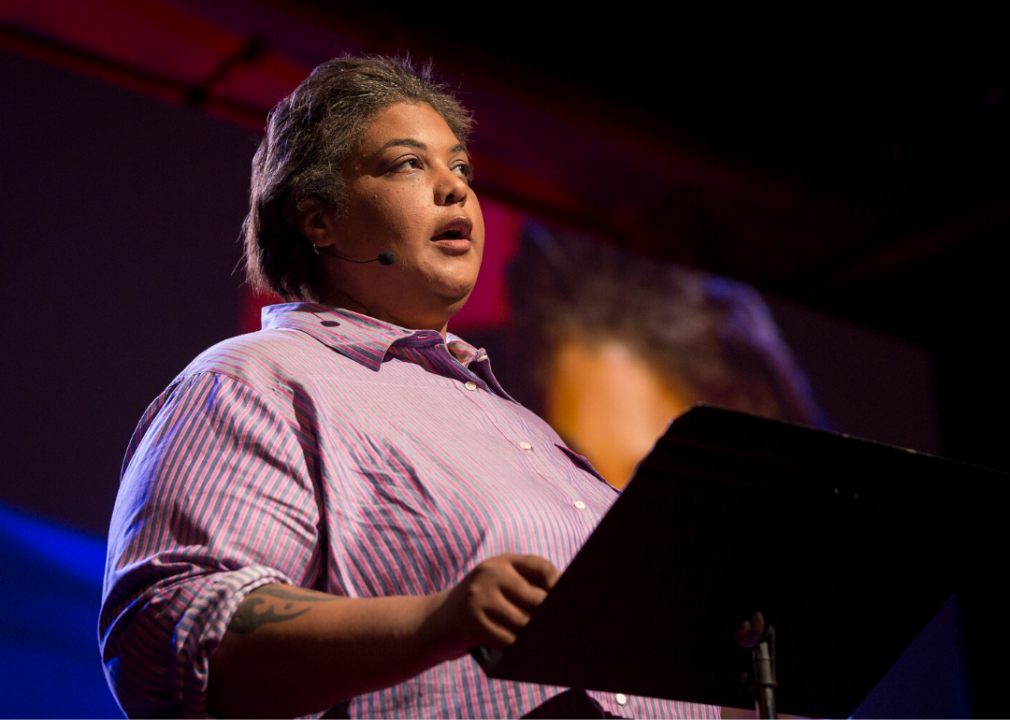
TED Conference // Flickr
Roxane Gay is a modern writer and feminist who’s had an enormous impact on the literary world and feminist thought in the last decade. Her 2014 collection of essays, “Bad Feminist,” was a highly praised New York Times bestseller, and was followed by two short story collections, a novel, and the memoir “Hunger: A Memoir of (My) Body.” Marisa Meltzer of Elle called Gay a “go-to voice on the ever-roiling front line of gender, race, and politics, and, perhaps most of all, the embodiment of intersectionality.”
28. W.E.B. DuBois
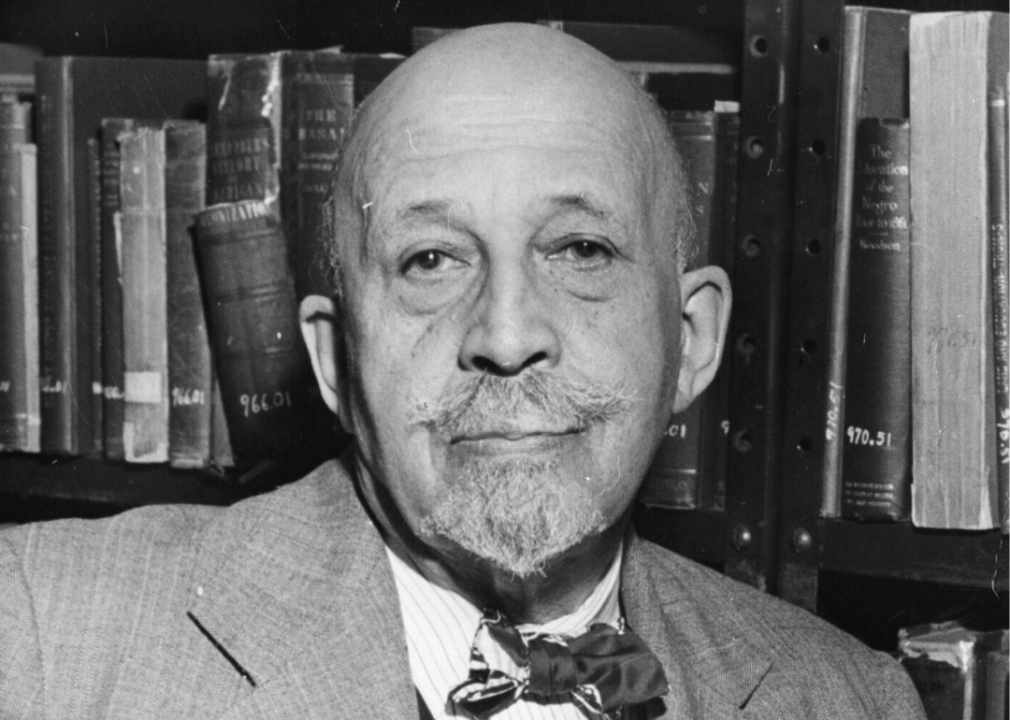
Keystone // Getty Images
W.E.B. DuBois, who’s been called “one of the most influential thinkers and activists of the 19th and 20th centuries,” was an author and civil rights activist who led the Niagara Movement, an equal rights organization in the early 20th century, and was a founder of the NAACP. The author, who was the first African American to earn a doctoral degree from Harvard University, is best known for “Black Reconstruction in America,” a groundbreaking historical narrative that reframed the Reconstruction Era and credited Black people with the “shaping of their own destiny.”
29. Michelle Obama
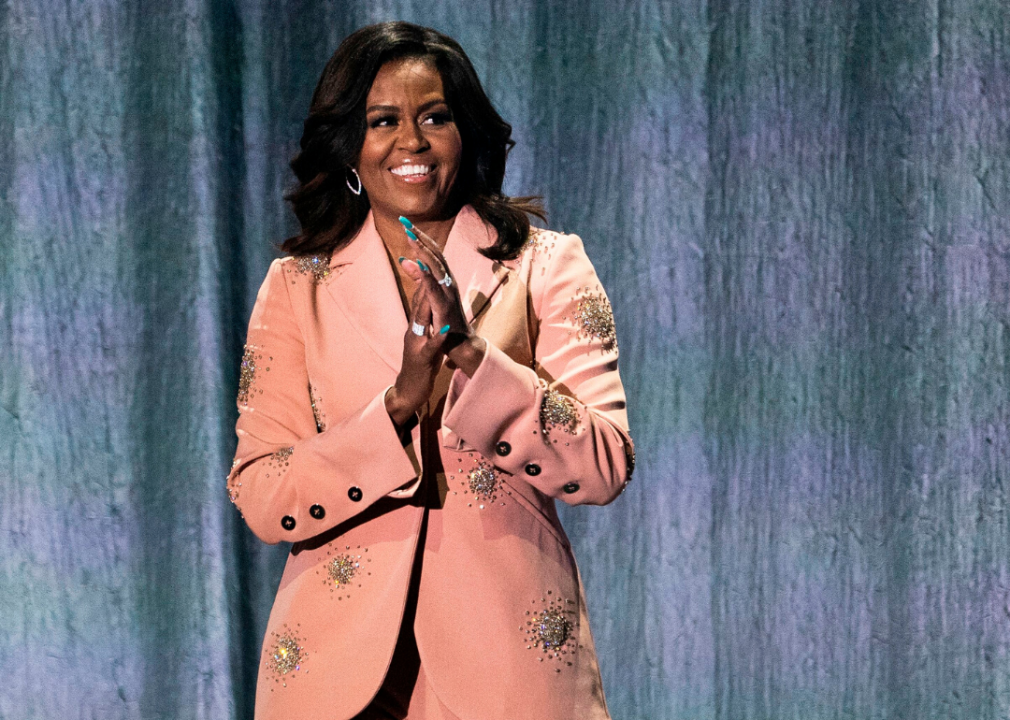
MARTIN SYLVEST/Ritzau Scanpix/AFP // Getty Images
The former president isn’t the only Obama who’s written a bestselling and highly influential memoir. Former first lady Michelle Obama also made a huge impact with “Becoming,” an insightful and deeply personal look back on her earlier years as well as her time at the White House. In 2018, the book broke records in 15 days, selling more copies than any other book published in the United States that year. On top of her accolades as an author, Michelle Obama has impacted the American public by visiting homeless shelters, advocating for public health campaigns, and championing women’s rights.
30. William Wells Brown
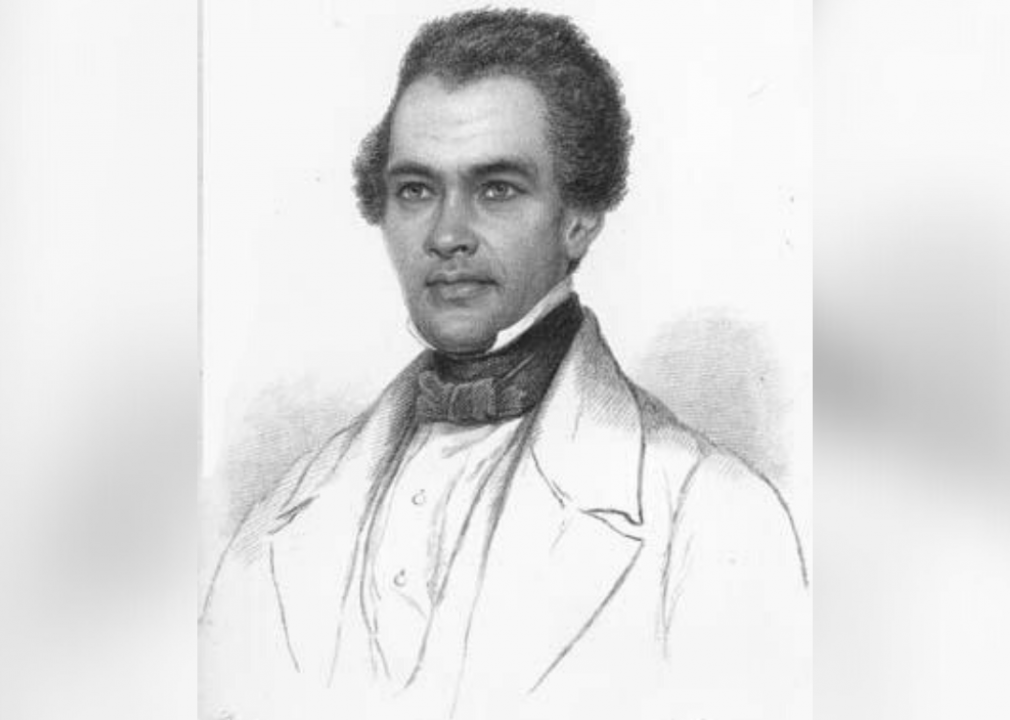
Project Gutenberg // Wikimedia Commons
A writer, lecturer, abolitionist, and human right activist all rolled into one, William Wells Brown had a great impact on America in the 19th century. In addition to his pioneering work as a travel writer, the escaped slave was an esteemed playwright—the first African American to be published in several genres, in fact. He was also the author of an extensive historical account of Black people during the Revolutionary War.
31. Sojourner Truth
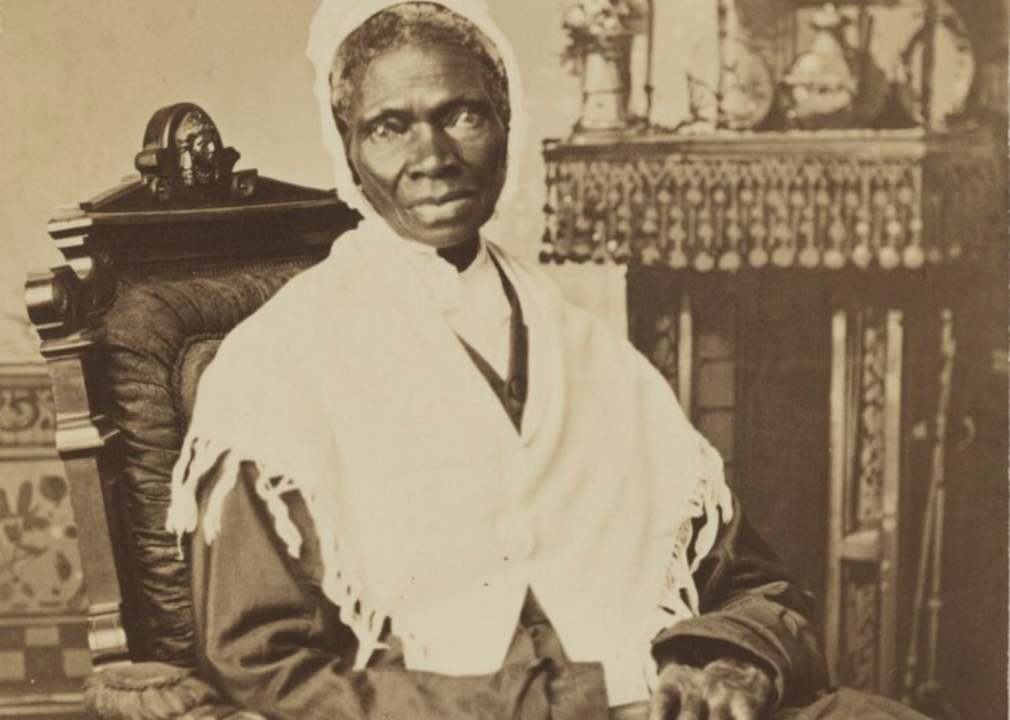
Randall Studio // Wikimedia Commons
Sojourner Truth was an abolitionist and women’s rights activist known for her advocacy work; however, she also made several notable contributions to the written word. Although she couldn’t read and write herself, the escaped enslaved woman worked with her friend Olive Gilbert and fellow abolitionist William Lloyd Garrison on a memoir that resulted in 1850’s “The Narrative of Sojourner Truth: a Northern Slave.” The book, combined with her powerful speech, “Ain’t I A Woman,” both helped shape the dialogue around abolition at the time—and in 2014, Smithsonian Magazine featured her on its 100 Most Significant Americans of All Time list.
32. Booker T. Washington
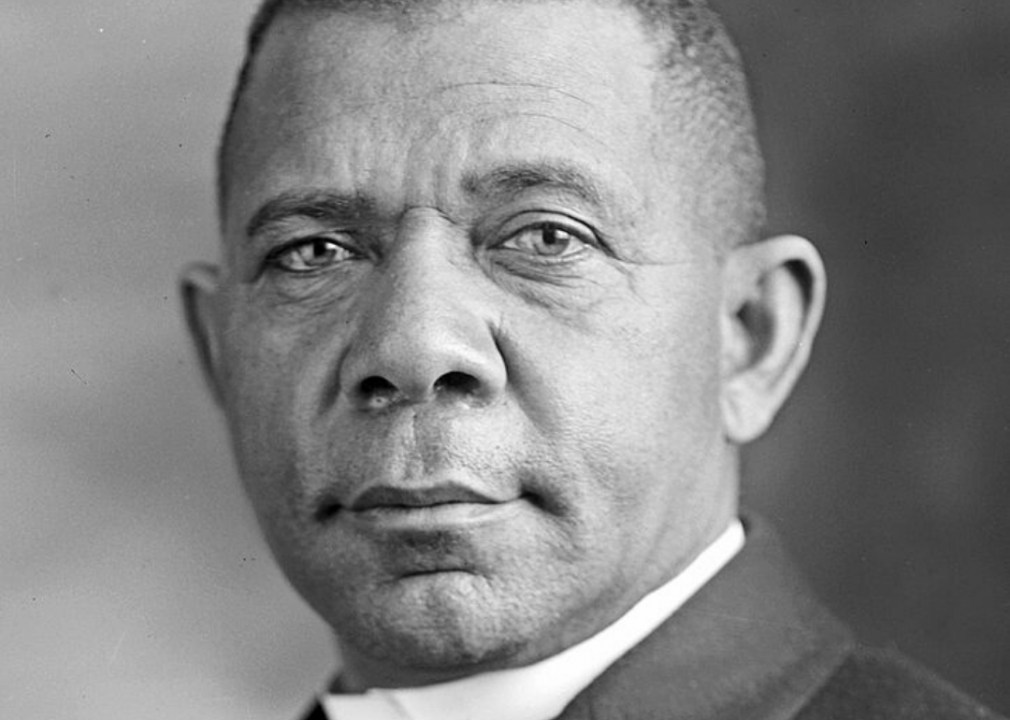
Harris & Ewing // Wikimedia Commons
There’s no doubt that Booker T. Washington—a former enslaved man and adviser to multiple presidents—had a huge impact on 19th- and early 20th-century politics, though some have argued as to whether his influence was positive. The African American community leader, who led Tuskegee University, wrote five books with a ghostwriter including “The Story of My Life and Work” and “Up From Slavery.” Washington was heavily criticized for failing to challenge Jim Crow segregation and encouraging Black people of the time to accept the status quo.
33. Phillis Wheatley
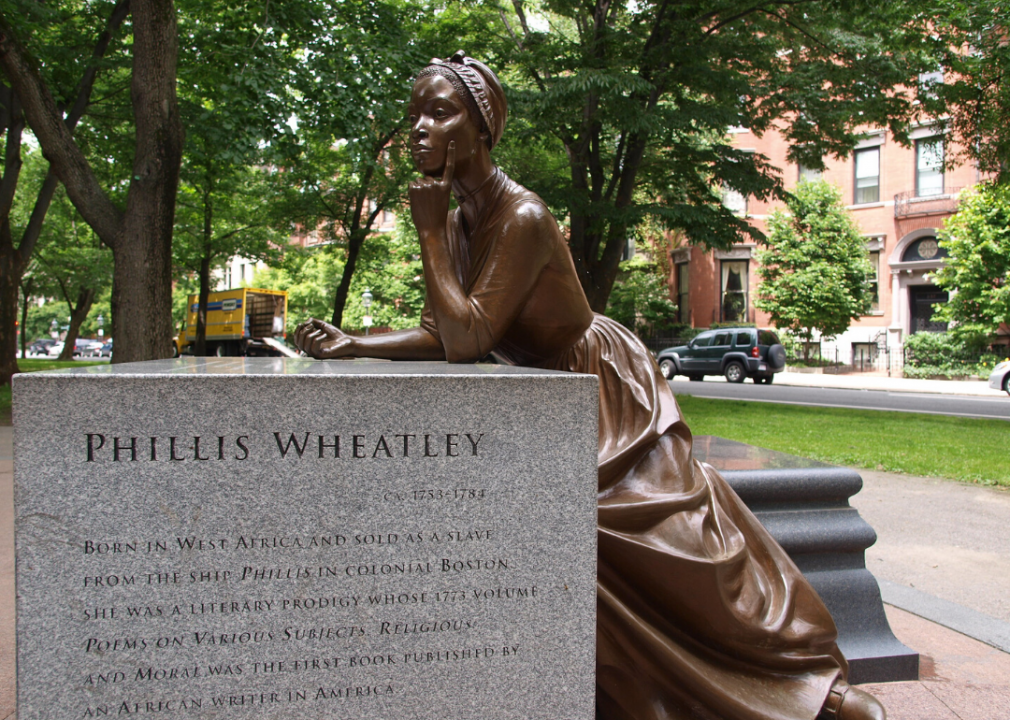
Darryl Kenyon // Flickr
Among many accomplishments, Phillis Wheatley was the first African American to publish a book of poems. The acclaimed poet was born in West Africa in 1753 and sold into slavery as a child. After her enslavers taught her to read and write, she wrote poems about the American Revolution that were later used to support abolition. “Wheatley was not alive to see her poetry make a consequential impact on the abolition of slavery,” wrote Dillon Hartigan of Southern Methodist University. “However, years after the Great Awakening was over and people understood its meaning, Wheatley’s poems were used to fight Southern views towards slavery.”
34. Claude McKay
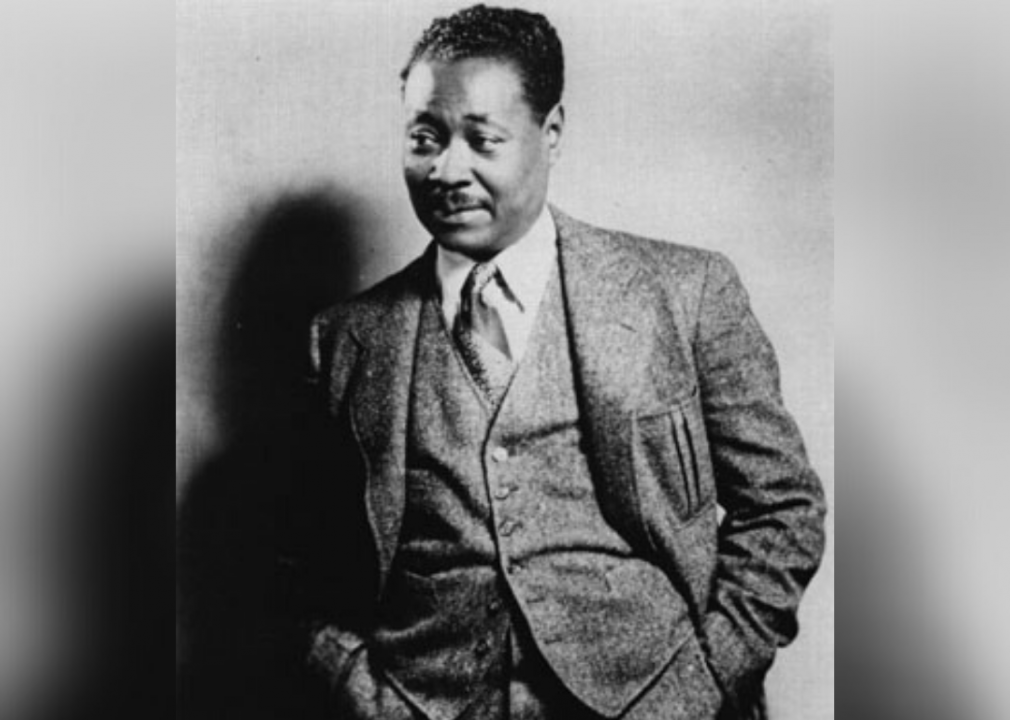
James L. Allen // Wikimedia Commons
Poet Claude McKay, a Jamaican immigrant and central figure in the Harlem Renaissance, is famous for his novel “Home to Harlem,” which won the Harmon Gold Award for Literature, and other works that influenced later poets like Langston Hughes, shaping how they would use their voice. Today, McKay is regarded for having “paved the way for Black poets to discuss the conditions and racism that they faced in their poems.”
35. Ntozake Shange
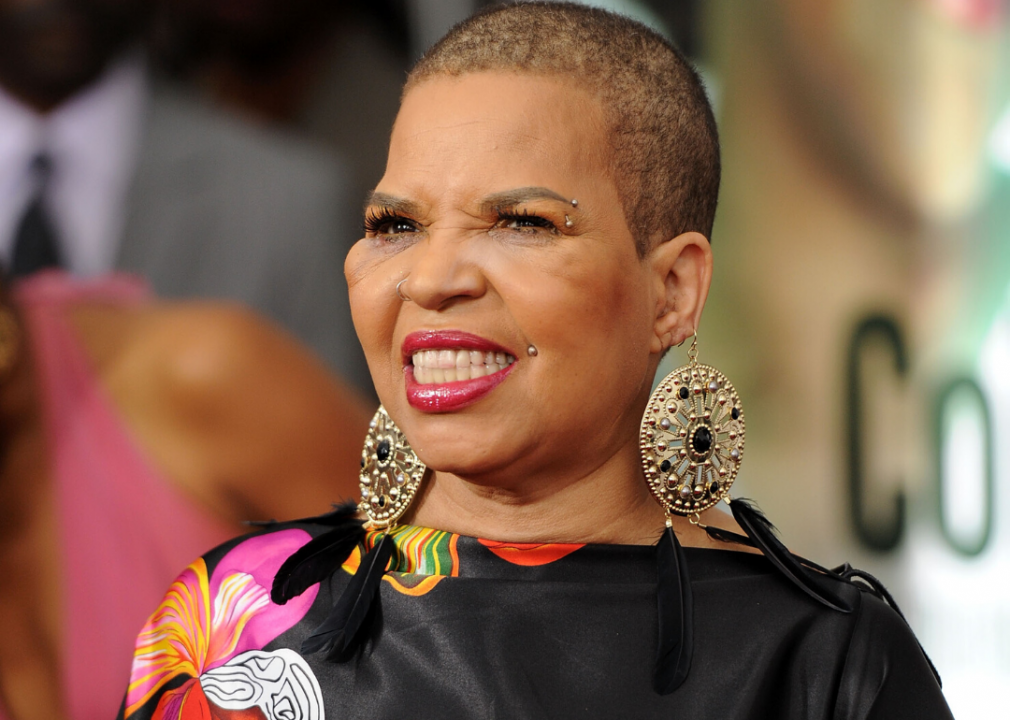
Stephen Lovekin // Getty Images
Black feminism owes a great deal to Ntozake Shange, a poet and playwright who dealt with topics of race, sexism, and Black power. She’s best known for her 1976 play “For Colored Girls Who Have Considered Suicide / When the Rainbow Is Enuf,” which won the prestigious Obie Award. On top of writing accolades, Shange is responsible for creating the “choreopoem” and coining the term, which describes a performance art that blends music and dancing with words.
36. Zora Neale Hurston
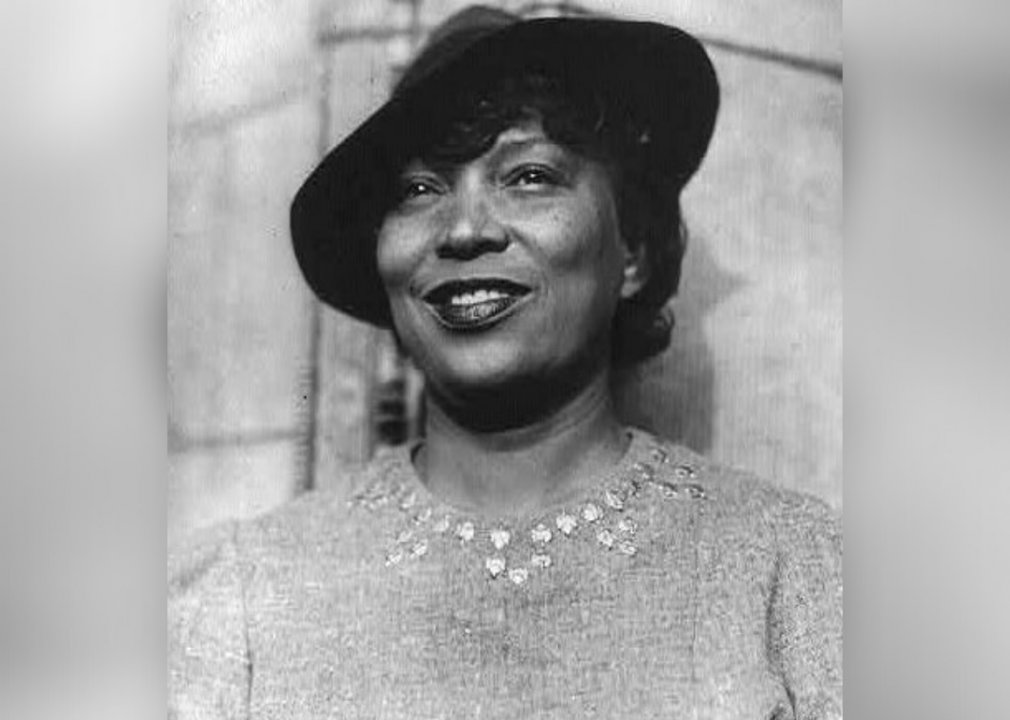
Unknown // Wikimedia Commons
In addition to her powerful novels that have garnered myriad accolades, Zora Neale Hurston is remembered as a key figure in the Harlem Renaissance. The artistic and intellectual explosion of 1920s New York produced numerous famous voices of which Hurston is one of the best known. Her most famous novel, “Their Eyes Were Watching God,” was written in 1937 but didn’t achieve literary fame until the 1970s amid the Black Arts Movement. In 2019, Hurston’s novel appeared on BBC Arts’ 100 Most Influential Novels list.
37. Bell Hooks
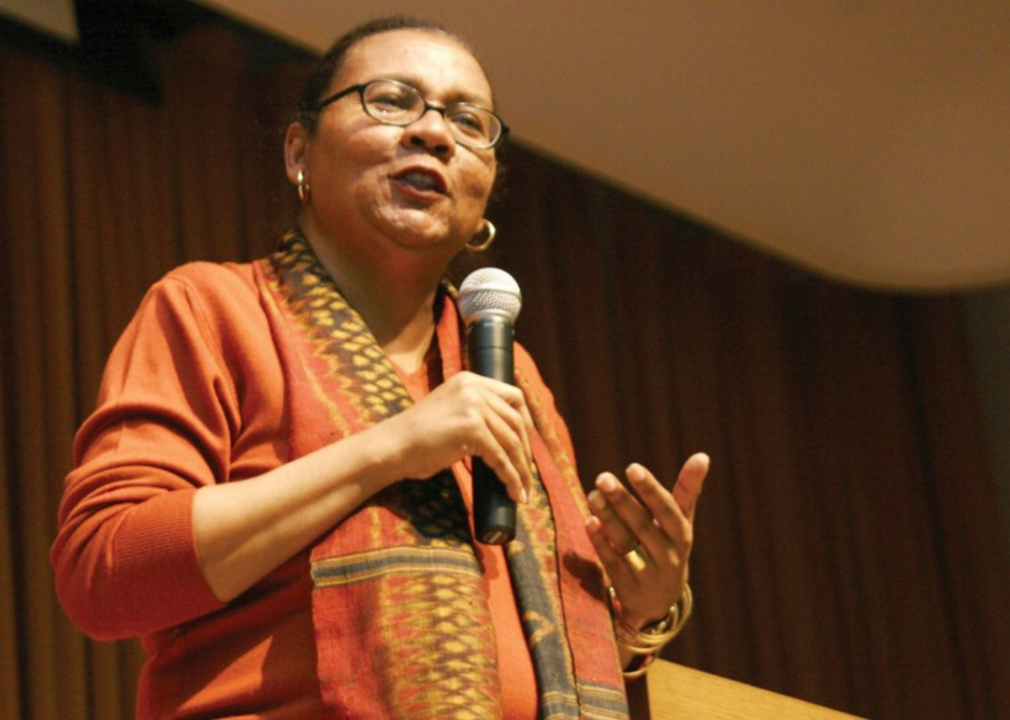
Cmongirl // Wikimedia Commons
An early critic of mainstream feminism, Gloria Jean Watkins, known professionally by her stage name bell hooks, has argued, among many things, that racism and sexism are inextricably connected. She’s the author of more than 30 books and academic articles, among which “Ain’t I a Woman?: Black Women and Feminism” and the memoir “Bone Black: Memories of Girlhood” are some of the most well-known.
38. Martin Luther King Jr.
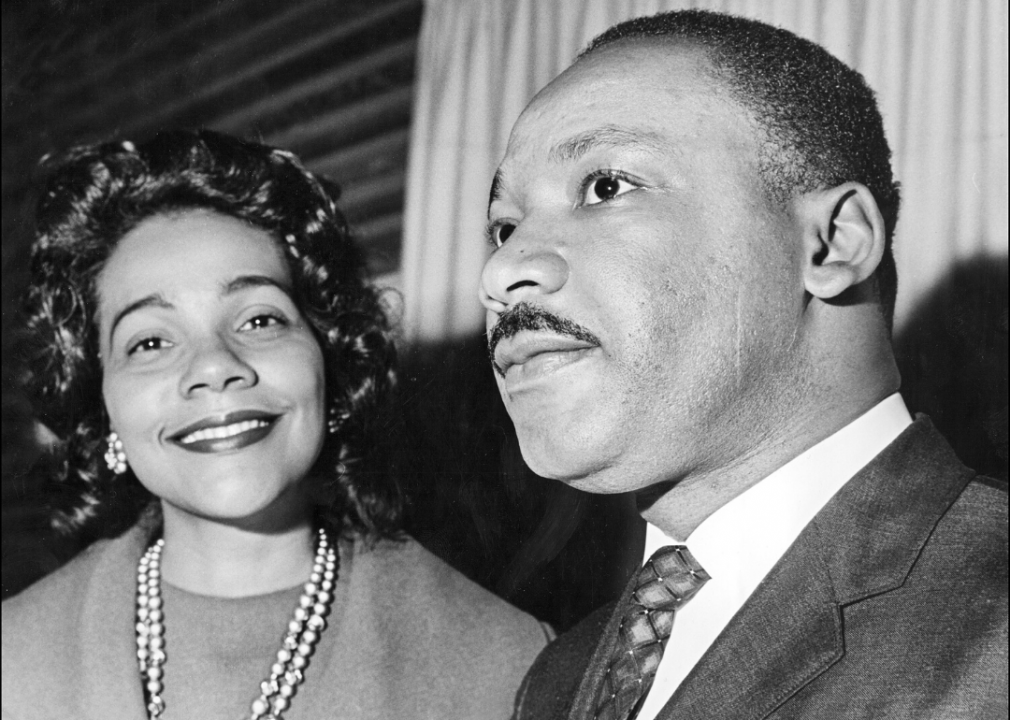
AFP // Getty Images
It’s hard to overstate the enormous impact that human rights activist Martin Luther King Jr. had on the American civil rights movement. However, some people are less familiar with his writing. The Nobel Peace Prize laureate, who pioneered the non-violence movement of the 1960s, was the author of a number of books including “Stride Toward Freedom: The Montgomery Story” and “Where Do We Go From Here: Chaos or Community?”—not to mention some of the most famous speeches in history.
39. Harriet Jacobs
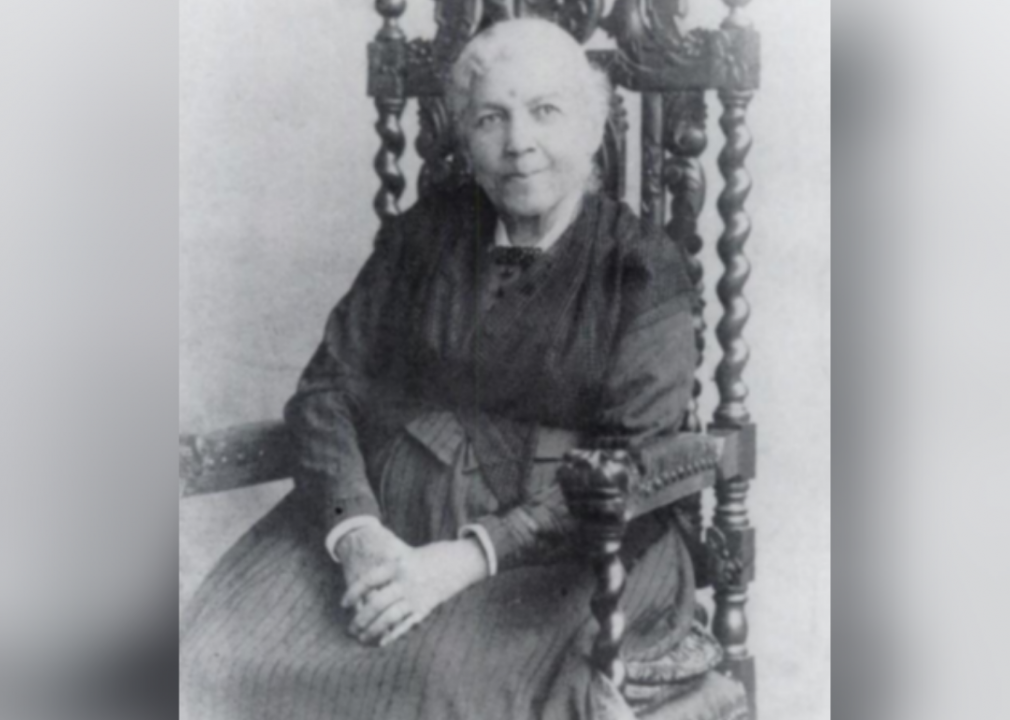
Unknown // Wikimedia Commons
An escaped enslaved person and passionate abolitionist, Harriet Jacobs is best known for her poignant autobiography “Incidents in the Life of a Slave Girl” which she first published in 1861 under a pseudonym. The book was remarkable for many reasons, one being that it was among the first to discuss the sexual harassment and abuse female slaves suffered. The New Bedford Historical Society called the book “the most important slave narrative written by an African American woman.”
40. Colson Whitehead
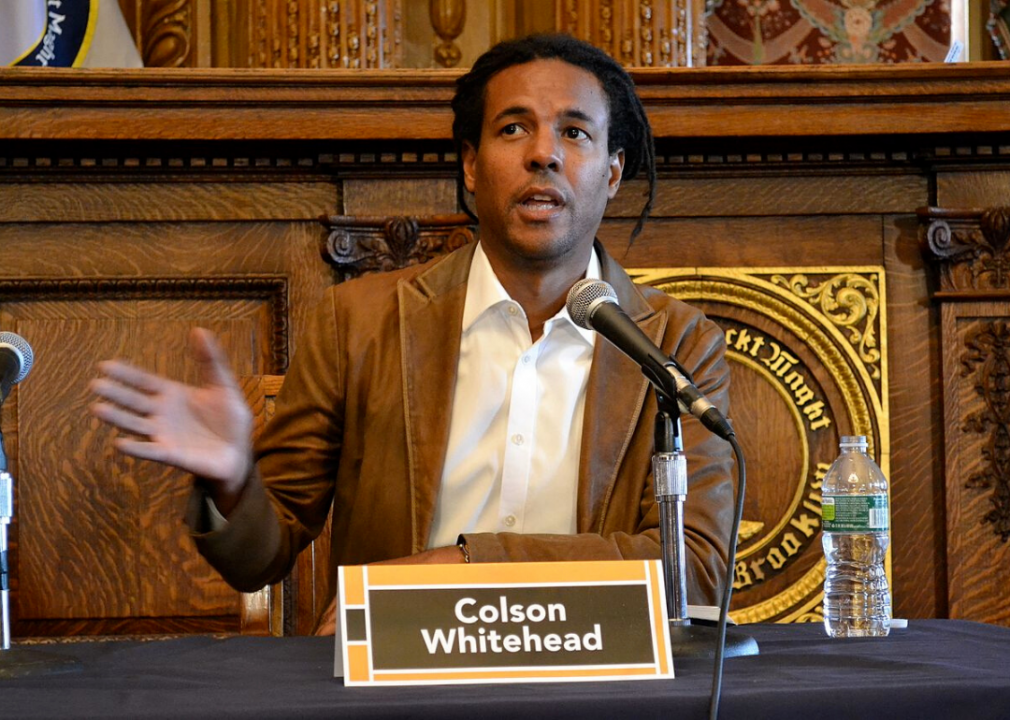
editrrix // Wikimedia Commons
Colson Whitehead is a highly acclaimed modern writer whose 2016 book, “The Underground Railroad,” and 2019’s “The Nickel Boys,” earned him two Pulitzer Prize for Fiction awards. The Pulitzer committee called the former “a smart melding of realism and allegory that combines the violence of slavery and the drama of escape in a myth that speaks to contemporary America.” Whitehead is the author of several other novels and two nonfiction books as well, many of which have also received widespread praise.
41. Jessie Redmon Fauset
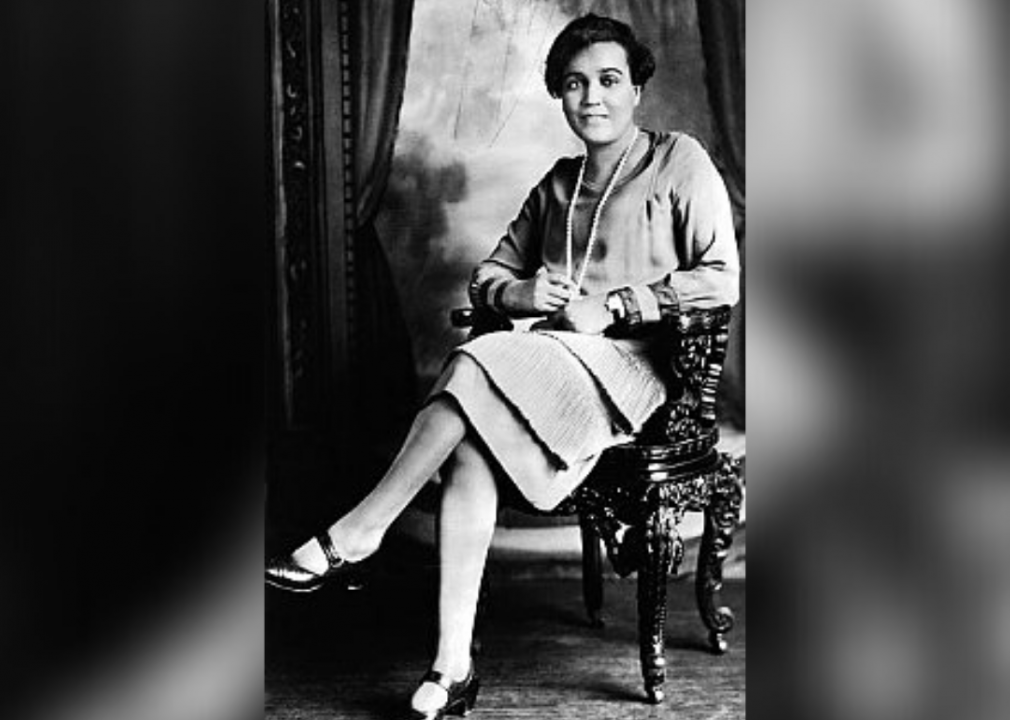
Unknown // Wikimedia Commons
Jessie Redmon Fauset, an author-poet and integral figure in the Harlem Renaissance, was the literary editor of the NAACP magazine The Crisis, as well as the editor of the children's magazine, The Brownies’ Book. She published four novels and provided mentorship to well-respected poets such as Claude McKay and Langston Hughes. Numerous historians have called her work and impact on the race dialogue under-appreciated. “A look at Fauset’s entire body of work reveals a writer who is more engaged with modern questions of race, class, and gender than she has been given credit for,” Professor Claire Oberon Garcia of Colorado College said of Fauset to The New Yorker.
42. Oprah Winfrey
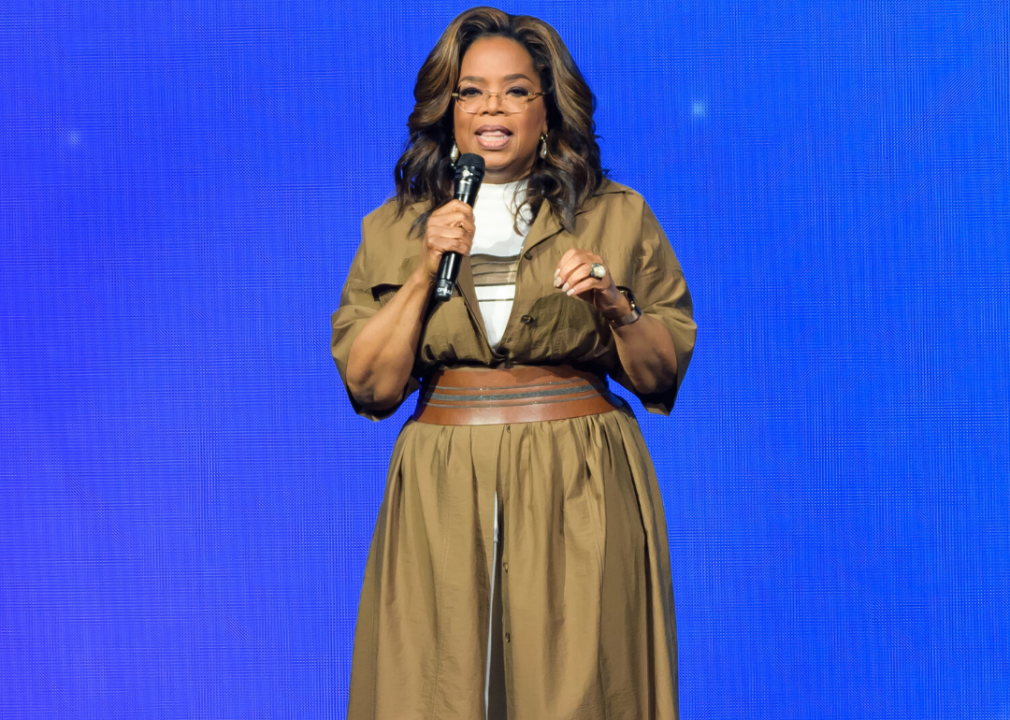
Jason Koerner // Getty Images
Oprah Winfrey’s impact on African Americans in the United States and others has been undeniable. She was the first Black multi-billionaire in North America and also the richest African American of the 20th century, and has been called one of the most influential women in the world more than once. She’s written multiple books, most of them in the self-help genre, inspiring people of all races to live happier, healthier, and more fulfilled lives. She also wrote “Journey to Beloved,” a collection of journal entries and thoughts about her role as Sethe in the 1998 adaptation of Toni Morrison’s novel “Beloved.”
43. Ralph Ellison
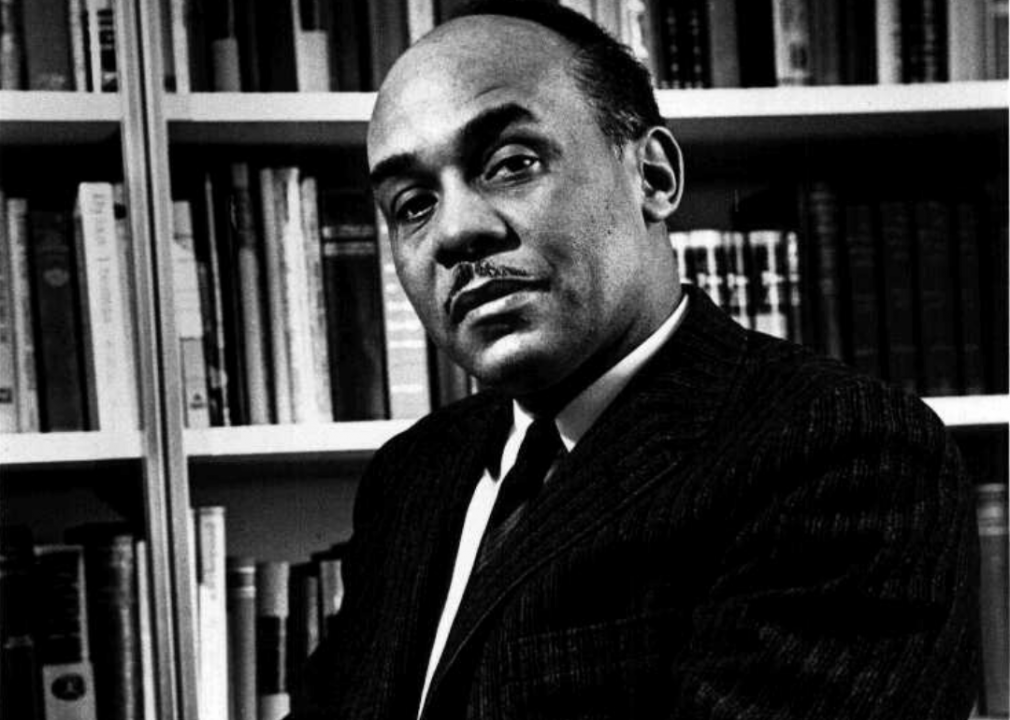
United States Information Agency // Wikimedia Commons
Author of the groundbreaking novel “Invisible Man”—which dealt with issues of African American identity, Black nationalism, and Marxism—Ralph Ellison had a huge impact on American thinking and politics in the 1950s and beyond. According to many scholars, he brought a new type of Black character to the page. “Ellison’s view was that the African-American culture and sensibility was far from the downtrodden, unsophisticated picture presented by writers, sociologists and politicians at the time, both black and white,” wrote Anne Seidlitz for PBS. “He posited instead that Blacks had created their own traditions, rituals, and a history that formed a cohesive and complex culture that was the source of a full sense of identity.”
44. Angela Davis
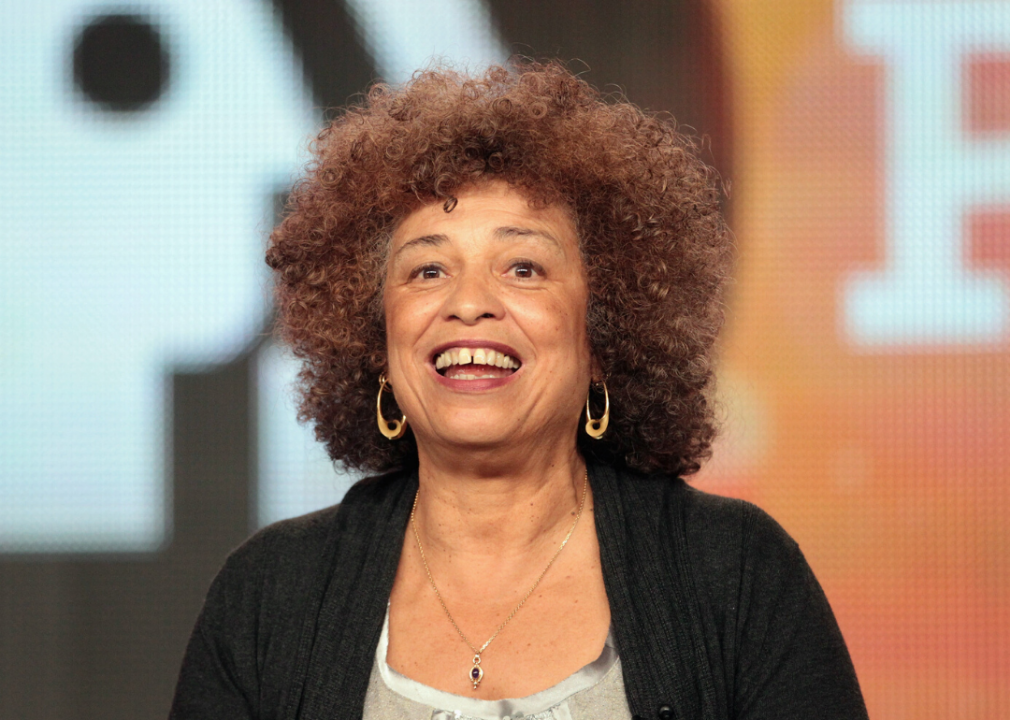
Frederick M. Brown // Getty Images
The contributions that Angela Davis has made over the years to American racial discourse have been immeasurable. The writer and human rights activist, who rose to fame in the late 1960s due to her activism and work with the Black Panthers and the Communist Party, is often remembered for her association with a domestic terror attack in Marin Country, California, that killed four people (she was prosecuted for purchasing the firearms but later acquitted by an all-white jury). Her work has contributed mightily to activism around racism and white supremacy, and she’s written more than 10 books exploring issues like feminism, women’s rights, race, class, and social justice.
45. Margaret Walker
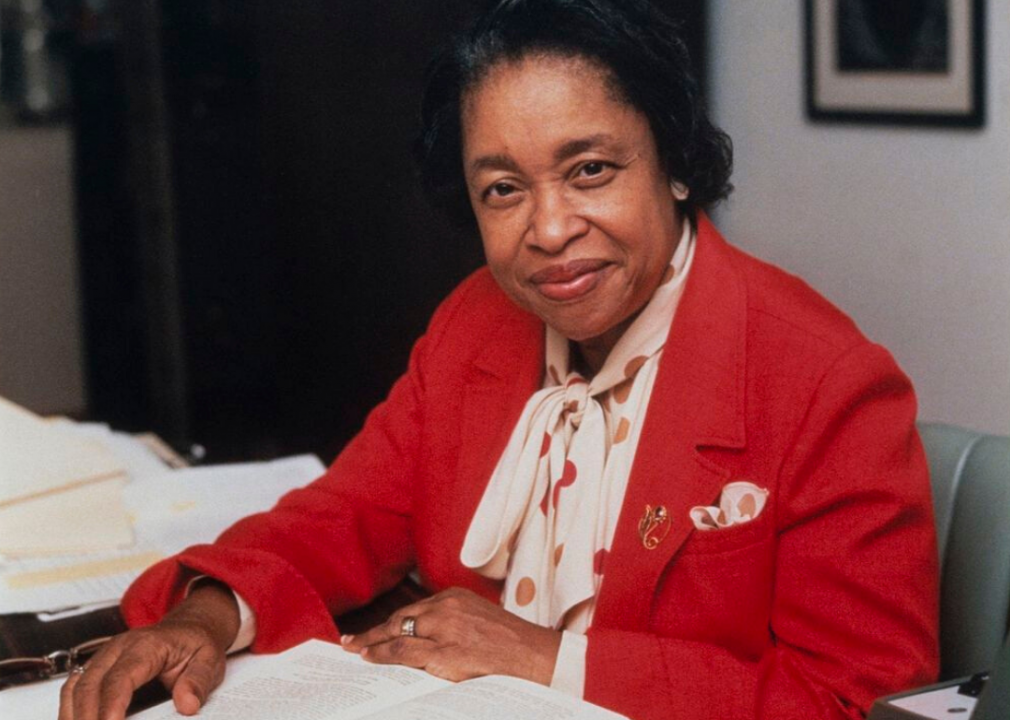
Schlesinger Library/RIAS/Harvard University // Wikimedia Commons
An integral part of the Chicago Black Renaissance, Margaret Walker was a vibrant figure in the literary community of the 1930s and ’40s. Her 1942 poetry collection, “For My People,” won the prestigious Yale Series of Younger Poets Competition and her 1966 historical novel about the American Civil War, titled “Jubilee,” was also highly acclaimed. After her death, fellow writer Amiri Baraka wrote of Walker: “She was one of the greatest writers of the language. She was the grandest expression of the American poetic voice and the ultimate paradigm of the Afro-American classic literary tradition.”
46. Frederick Douglass
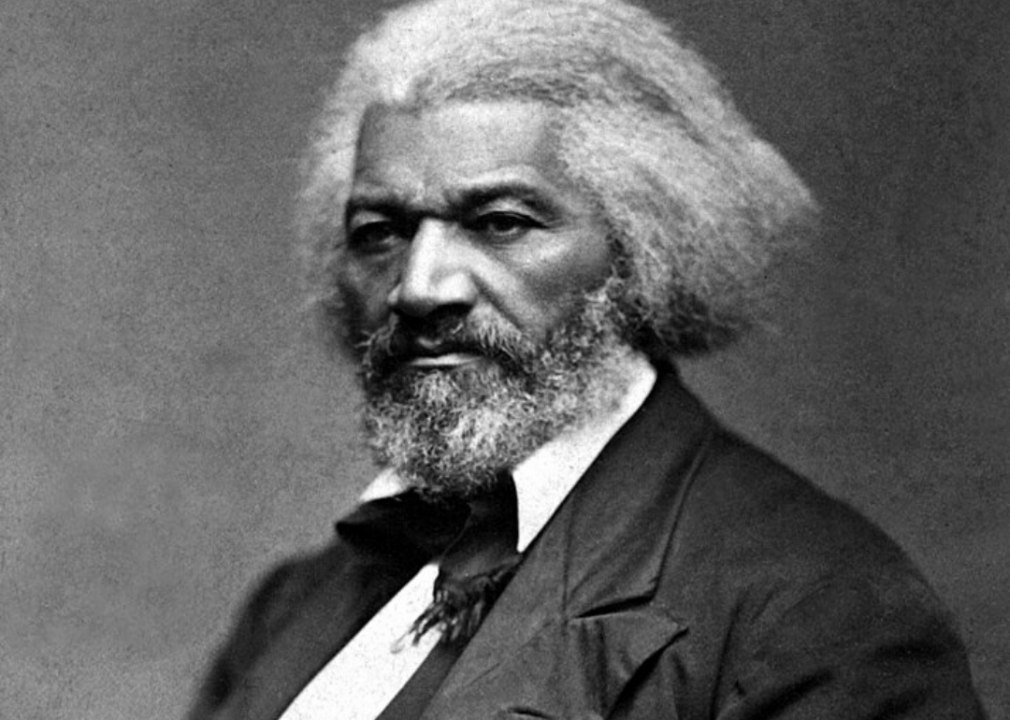
George Kendall Warren // Wikimedia Commons
Frederick Douglass was an escaped enslaved man, abolitionist, and suffragist whose writings had an enormous impact on African American discourse in the 19th century and beyond. He was taught to read by a white woman named Lucretia Auld who inherited him as an enslaved person from her father. He, in turn, taught other slaves to read before his escape in 1838. Douglass is the author of multiple autobiographies including the 1845 bestseller “Narrative of the Life of Frederick Douglass, an American Slave” and 1855’s “My Bondage and My Freedom.” In the foreword to the latter, John Stauffer called Douglass “one of the most powerful voices to emerge from the American civil rights movement.”
47. Harriet Wilson
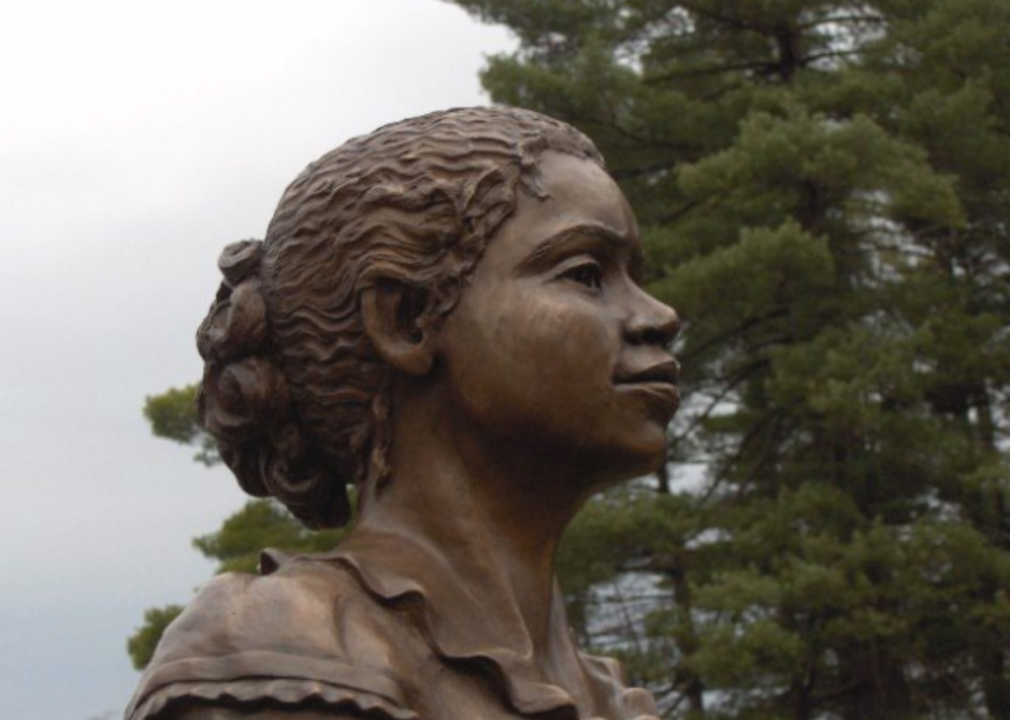
GoodReads
Harriet Wilson, who was born free in 1825 but became an indentured servant after being orphaned, was the first African American to publish a novel in the United States. She did so anonymously with a book called “Our Nig” and it wasn’t until the 1980s that a scholar discovered her identity and credited her with the groundbreaking accomplishment. “It turned the literary world on its end, as up to that point it had been widely accepted that the first African American published novelist had been Frances Ellen Watkins Harper,” wrote Carla Garner for BlackPast.org.
48. Barbara Christian
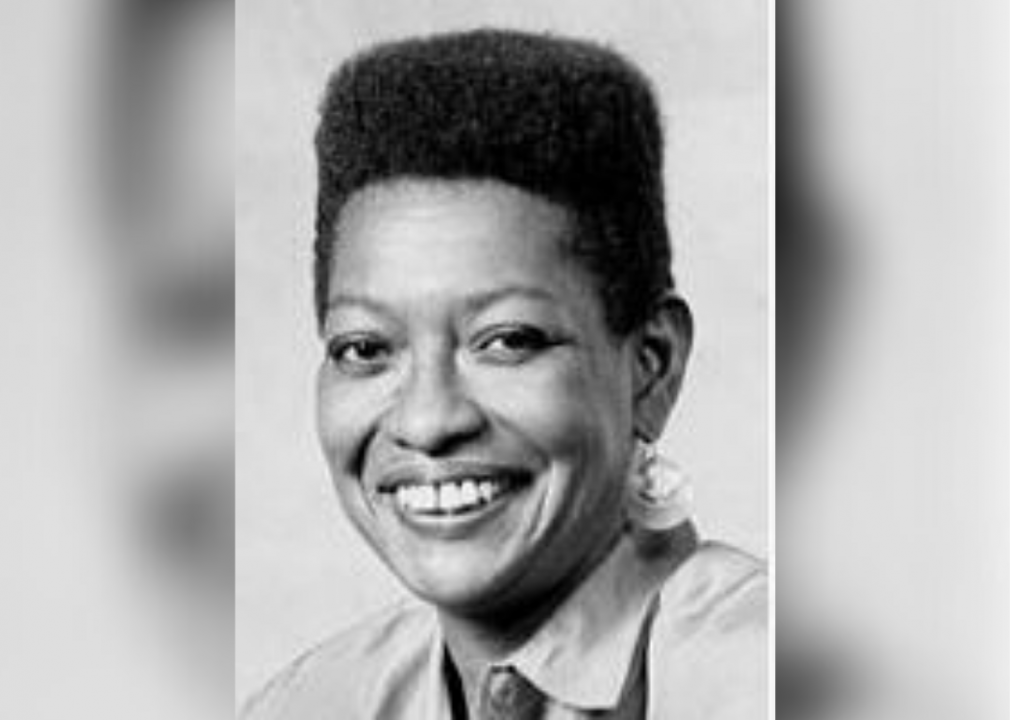
Unknown // Wikimedia Commons
In addition to multiple full-length books, the prolific Barbara Christian, a professor of African American Studies at the University of California, Berkeley (and the university’s first Black woman to be granted tenure), penned more than 100 articles. She wrote broadly about race and advocated for literature and academics to be more accessible to women and people of color. In a 2000 New York Times obituary, she was called a “leading critical presence in the growing debates over the relationship among race, class and gender.”
49. Alice Walker
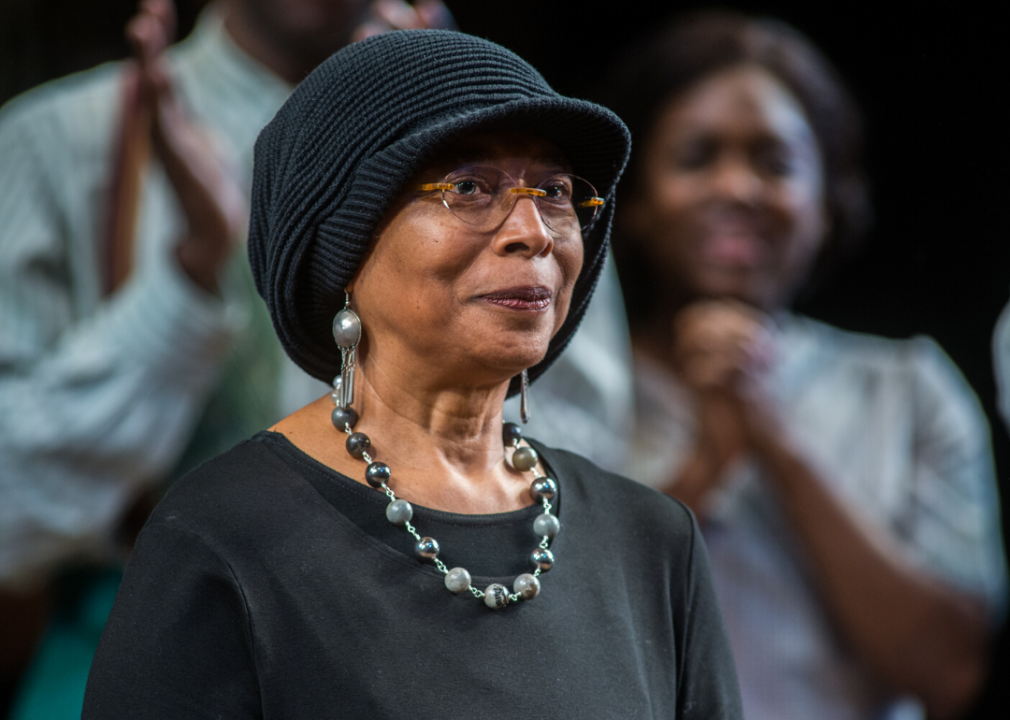
Mark Sagliocco // Getty Images
Few contemporary African American authors have achieved the degree of praise and literary acclaim as Alice Walker, author of the 1982 Pulitzer Prize-winning novel “The Color Purple.” In addition to her copious accolades as an author, Walker is a feminist and social activist who is responsible for coining the term “womanist.” On top of her most famous novel, Walker wrote other works such as “The Third Life of Grange Copeland” and “Meridian.
50. August Wilson
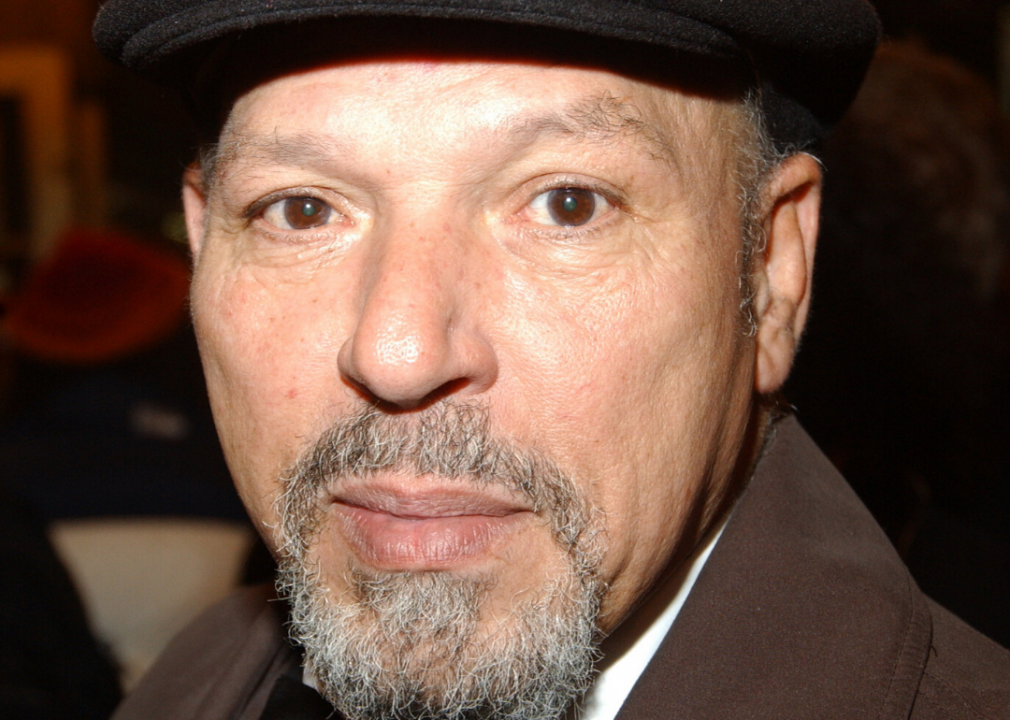
Brad Barket // Getty Images
August Wilson was an esteemed playwright who won two Pulitzer Prizes for his series of 10 plays collectively titled “The Pittsburgh Cycle” (the awards went to “Fences” and “The Piano Lesson”). Each play was set in a different decade and depict different facets of 20th-century African American life. The Courier-Journal’s Betty Baye, speaking to NPR, called Wilson a “miracle of creativity,” noting that he was “a man so unabashedly in love with Black people and so keenly insightful about the complexities of being an African American that he took upon himself the awesome challenge of writing 10 plays about the Black experience, one for each decade of the 20th century.”







